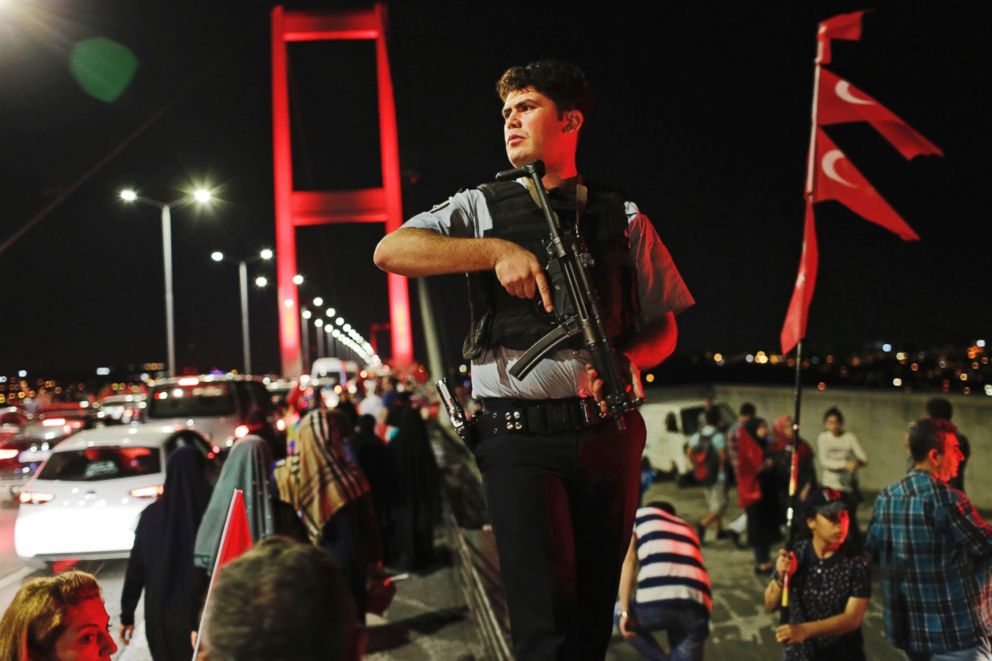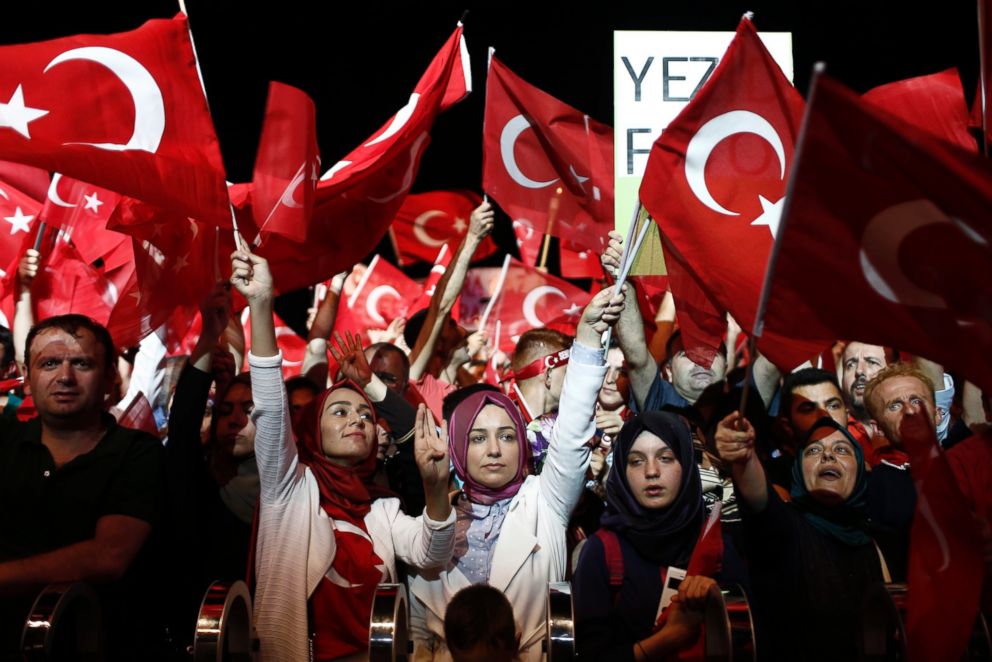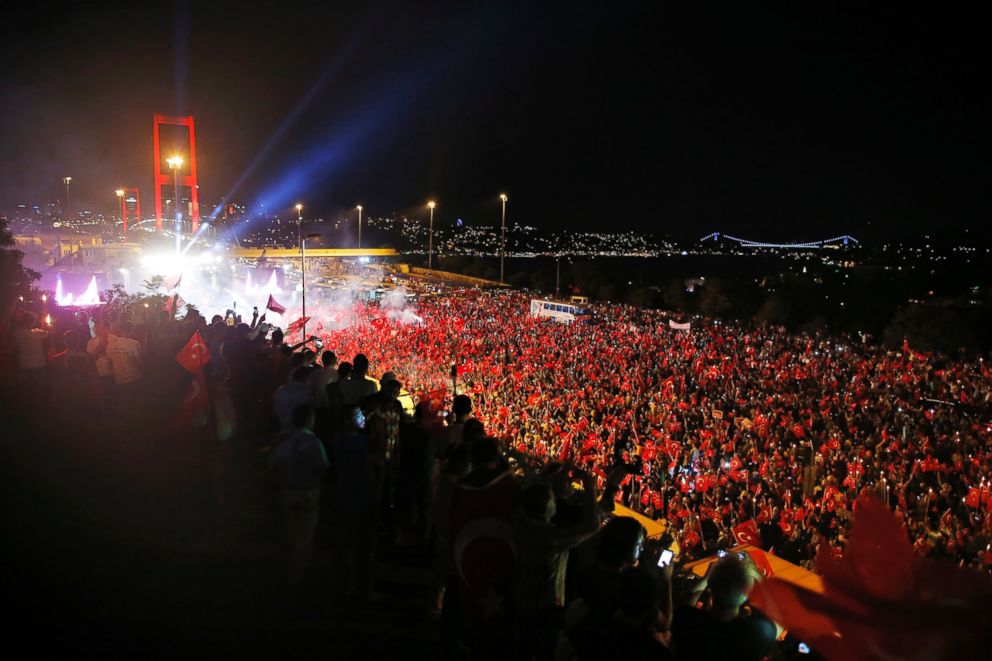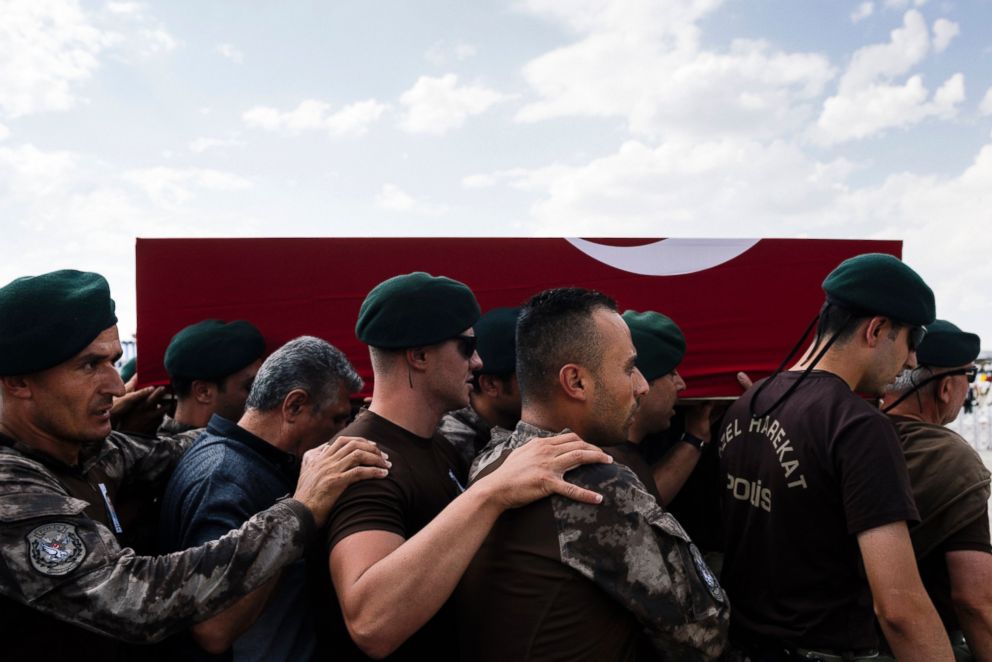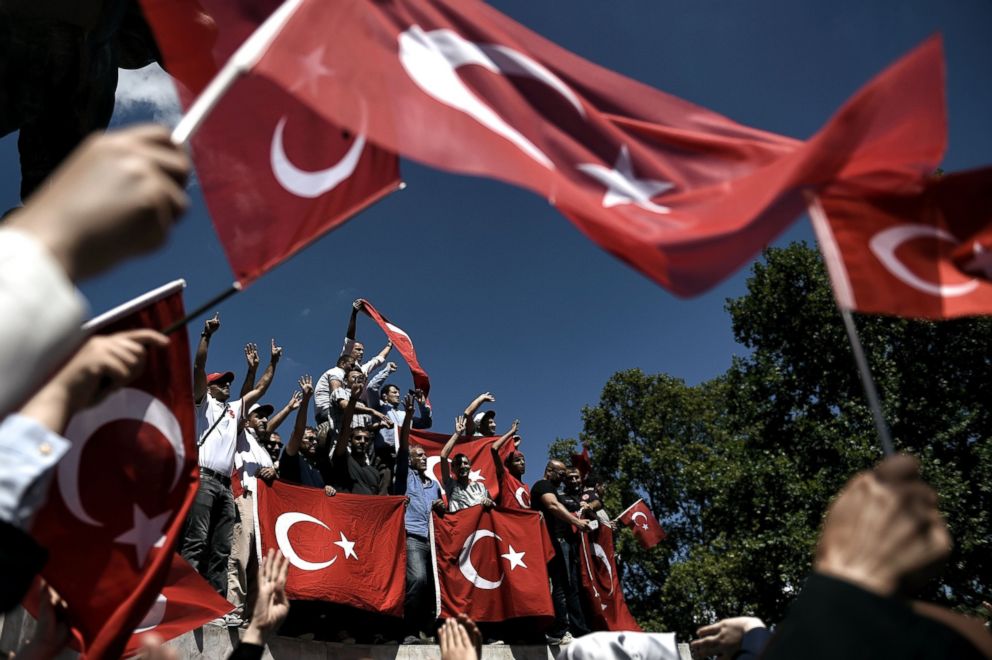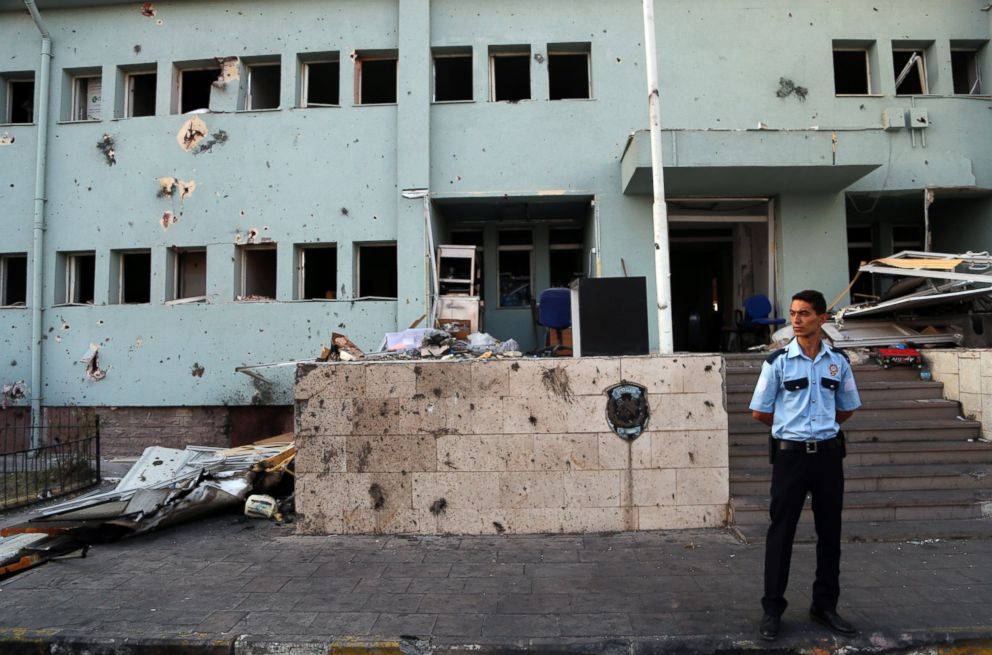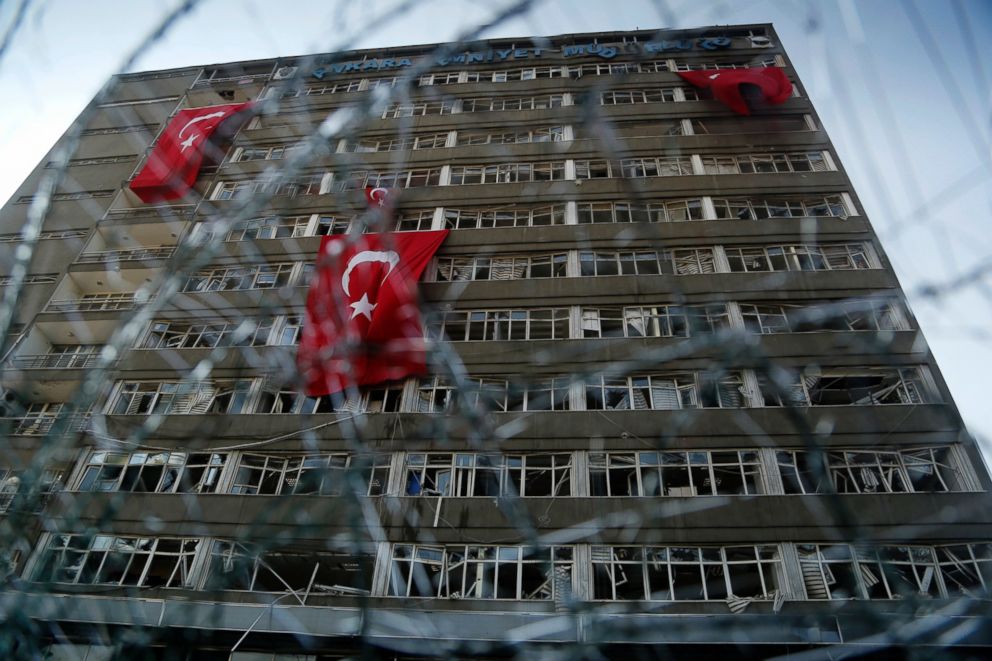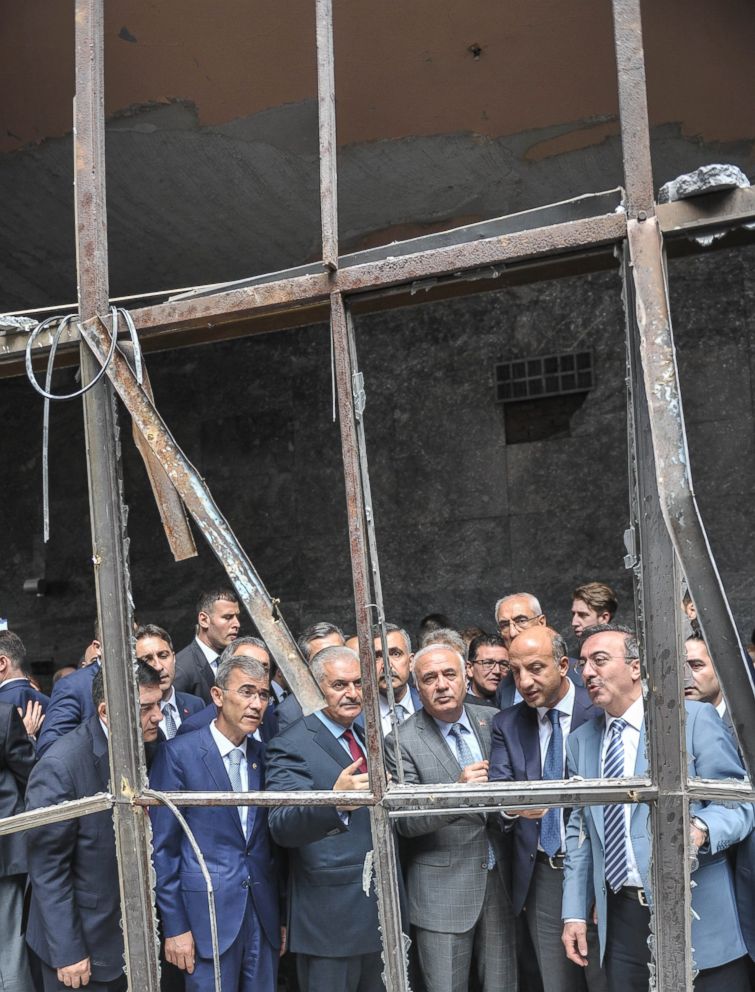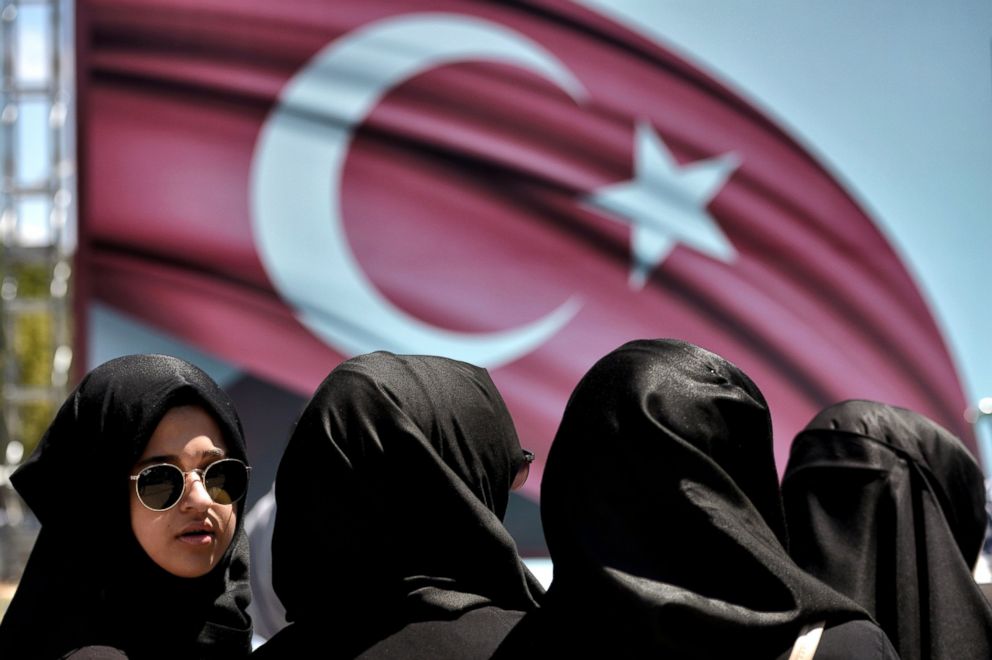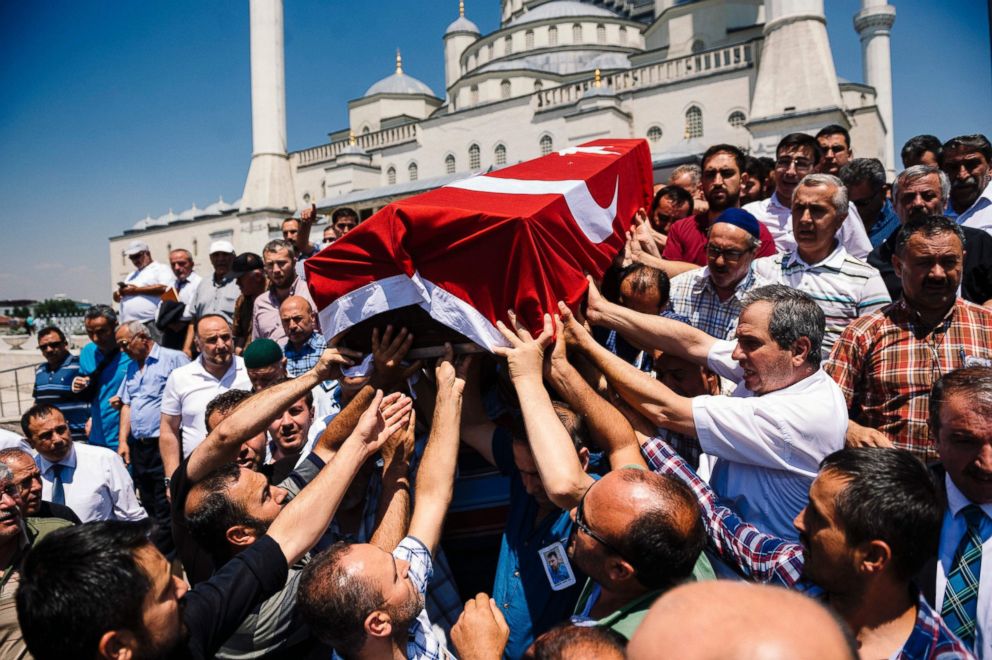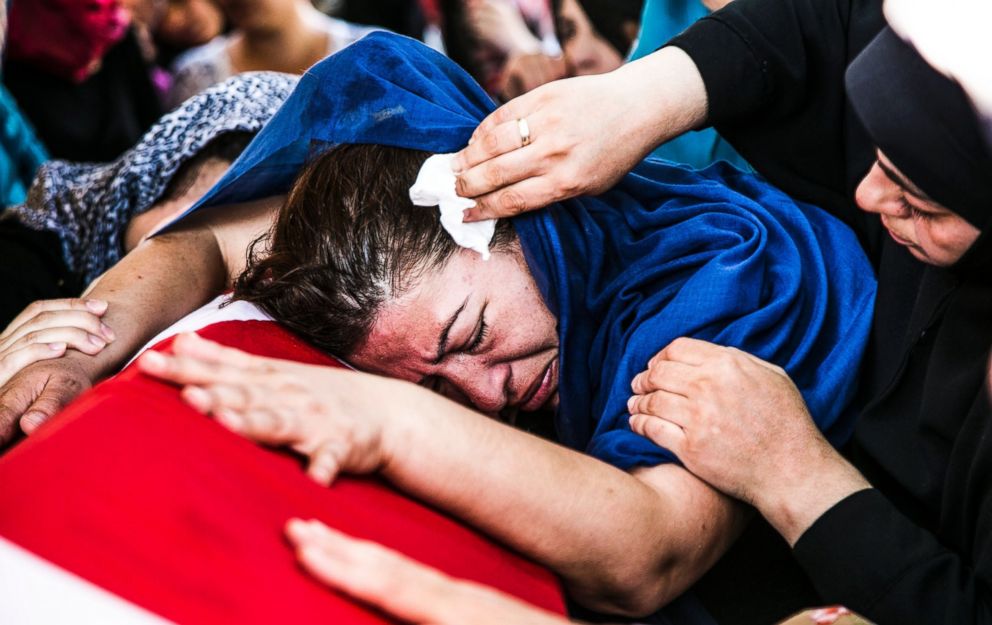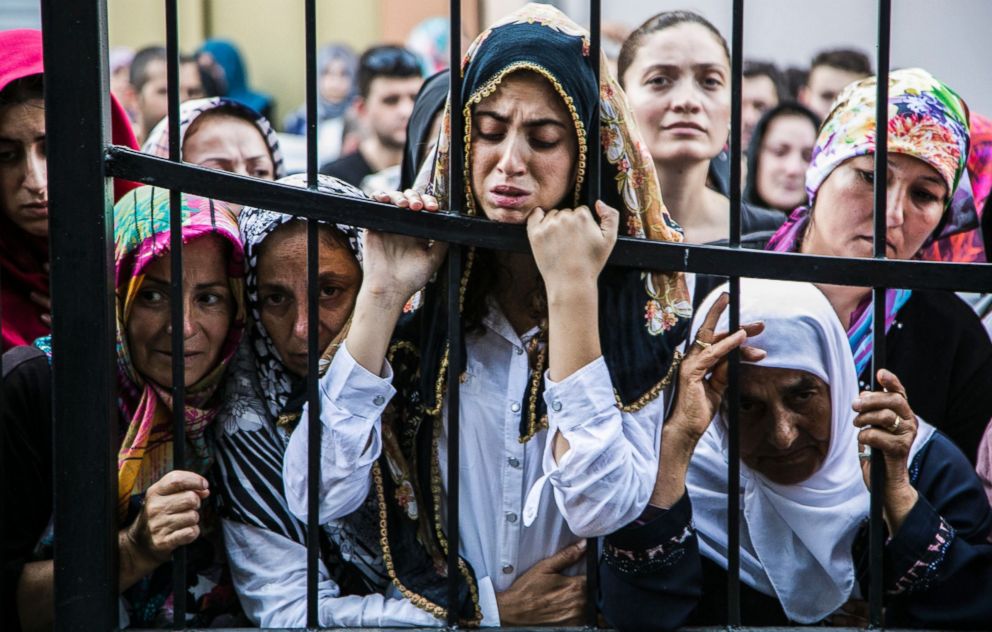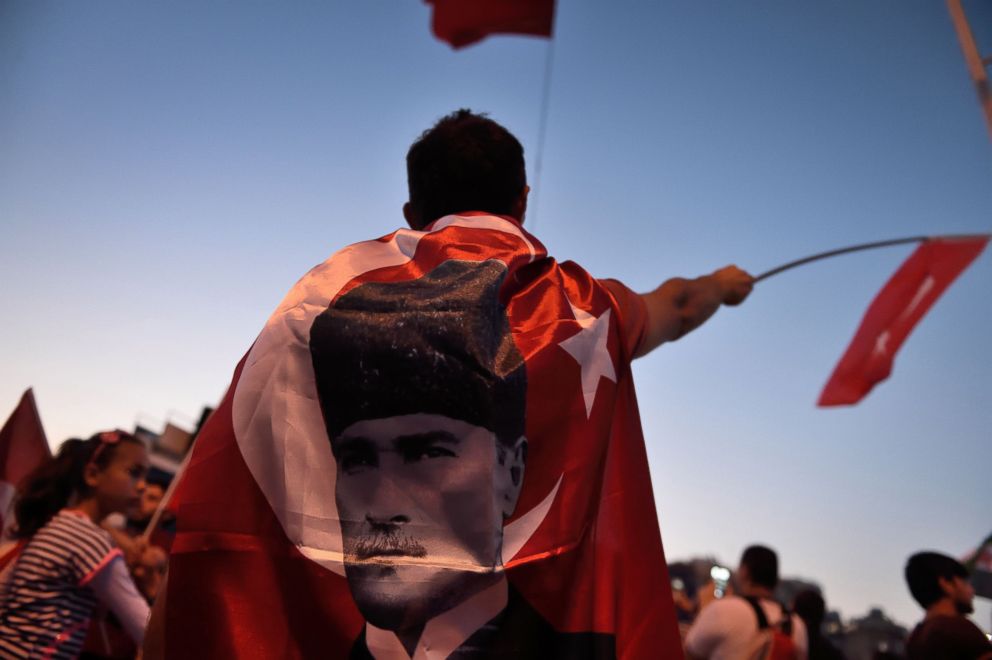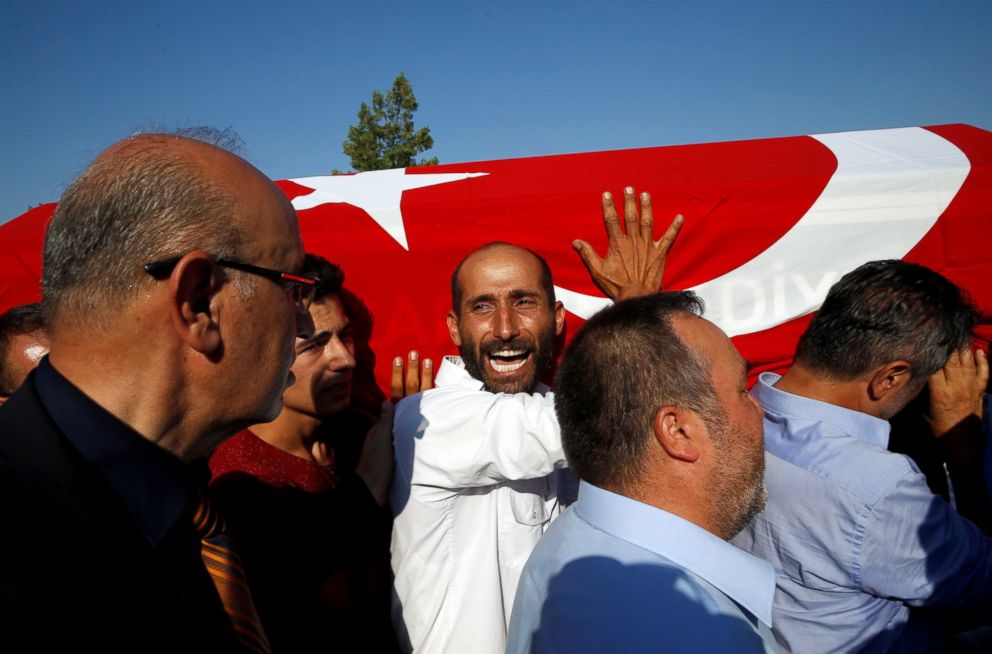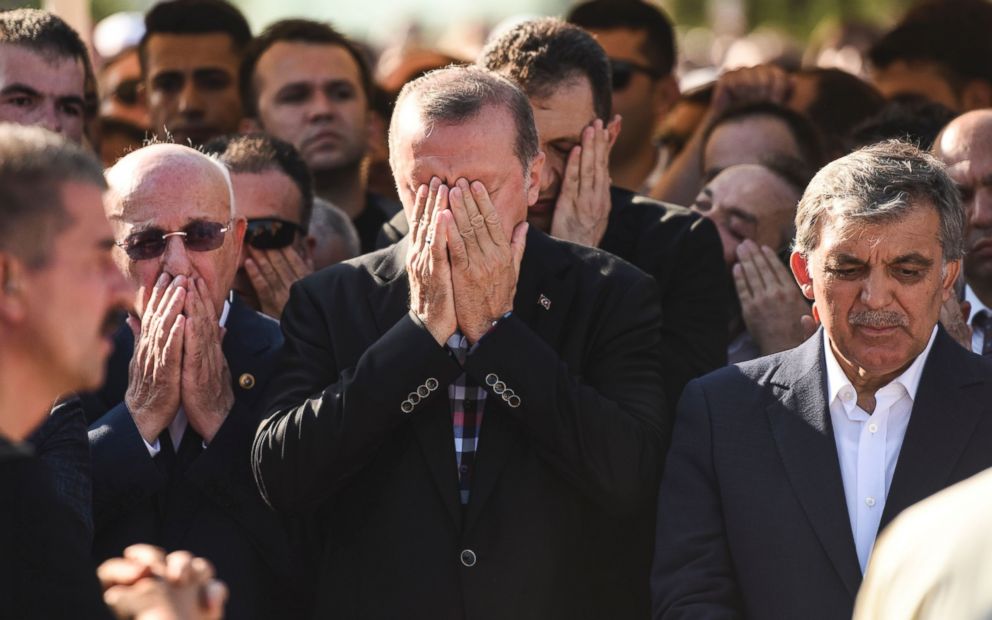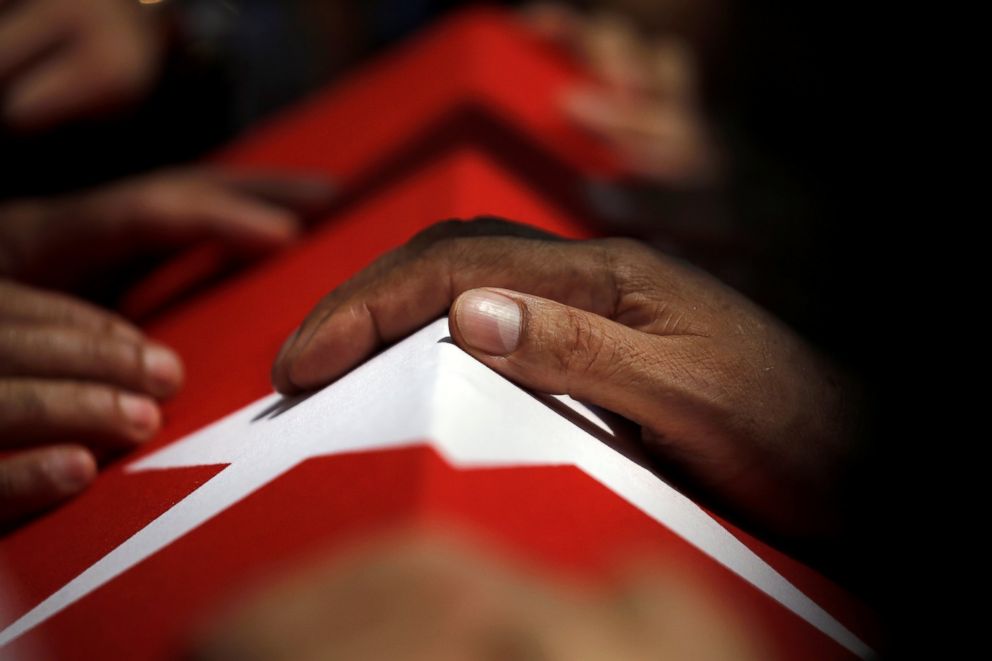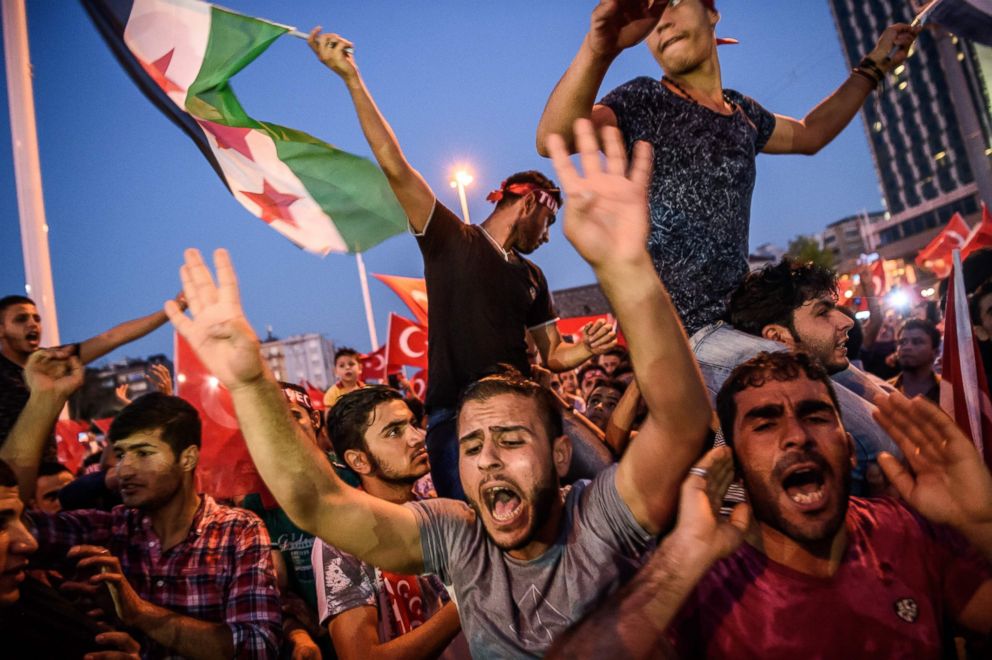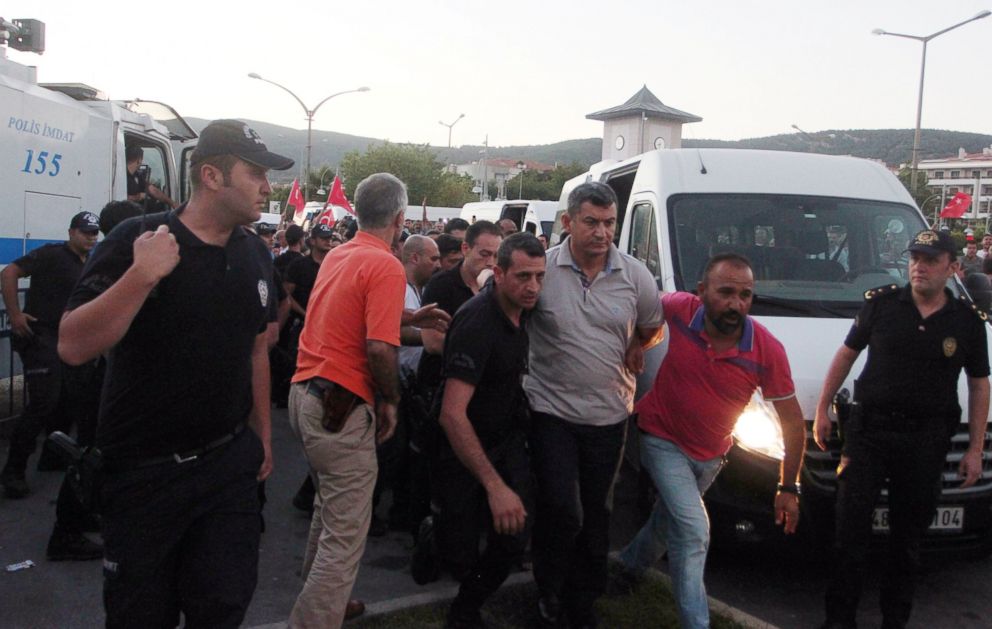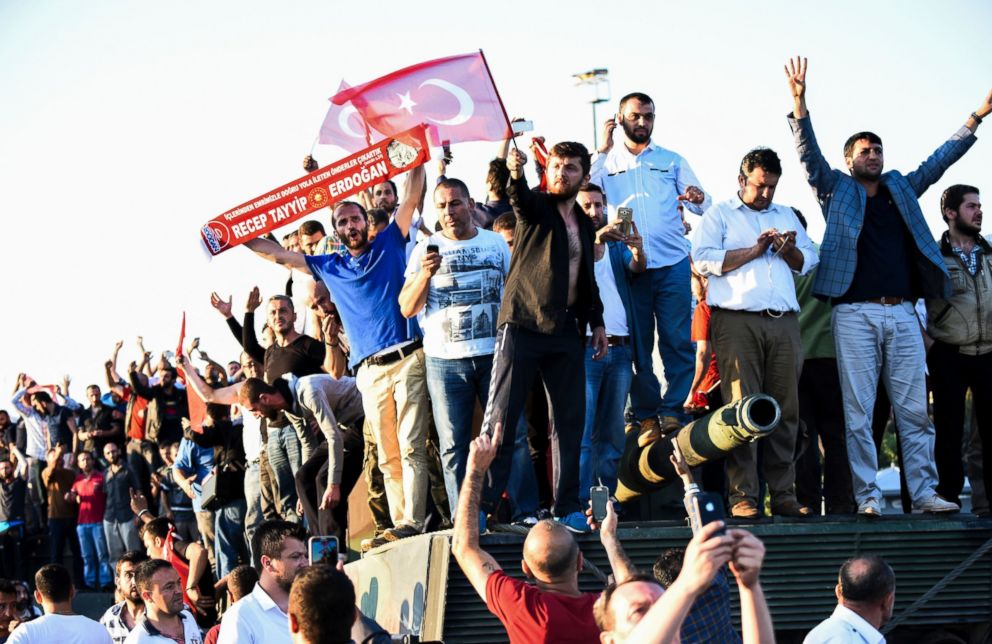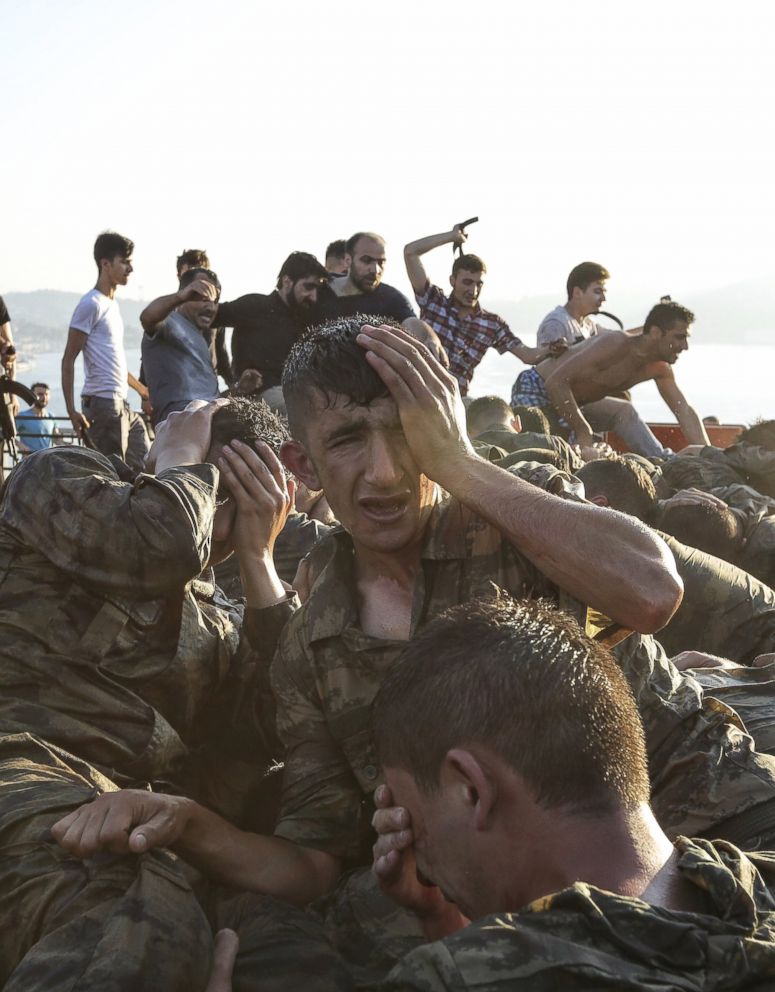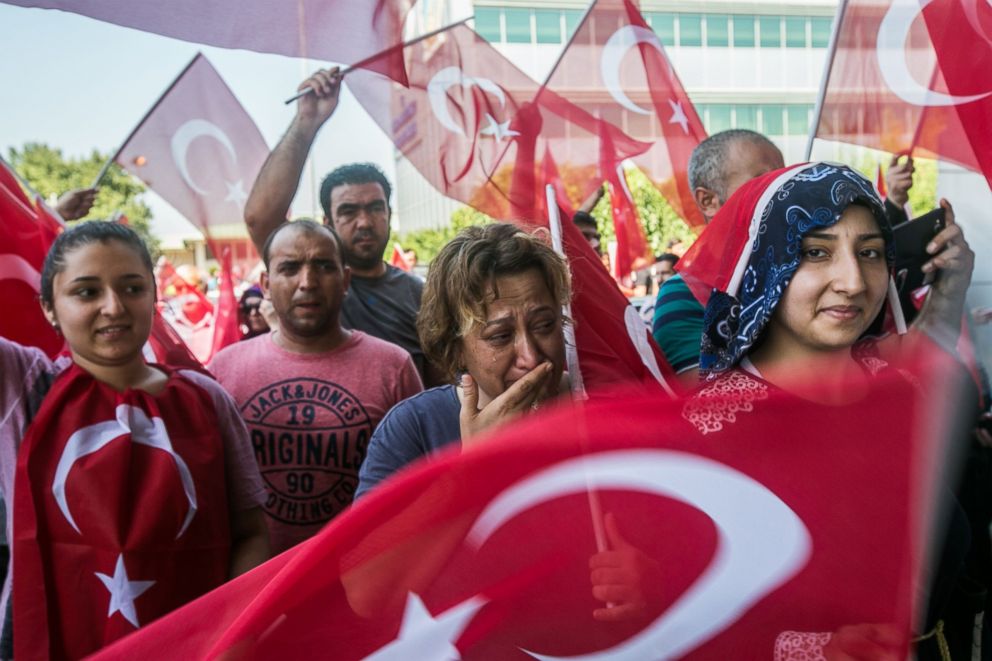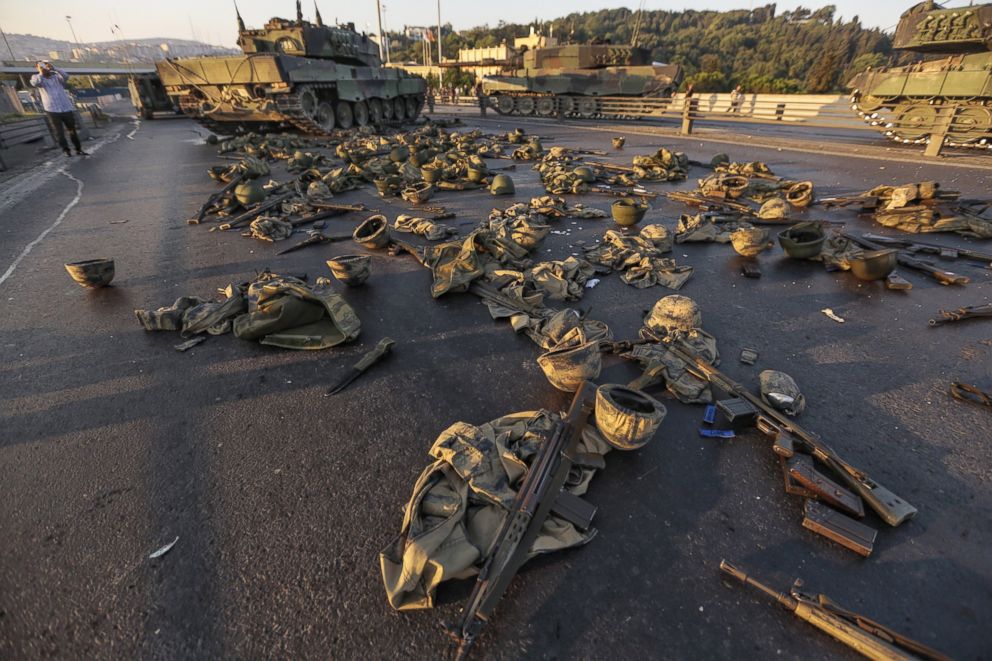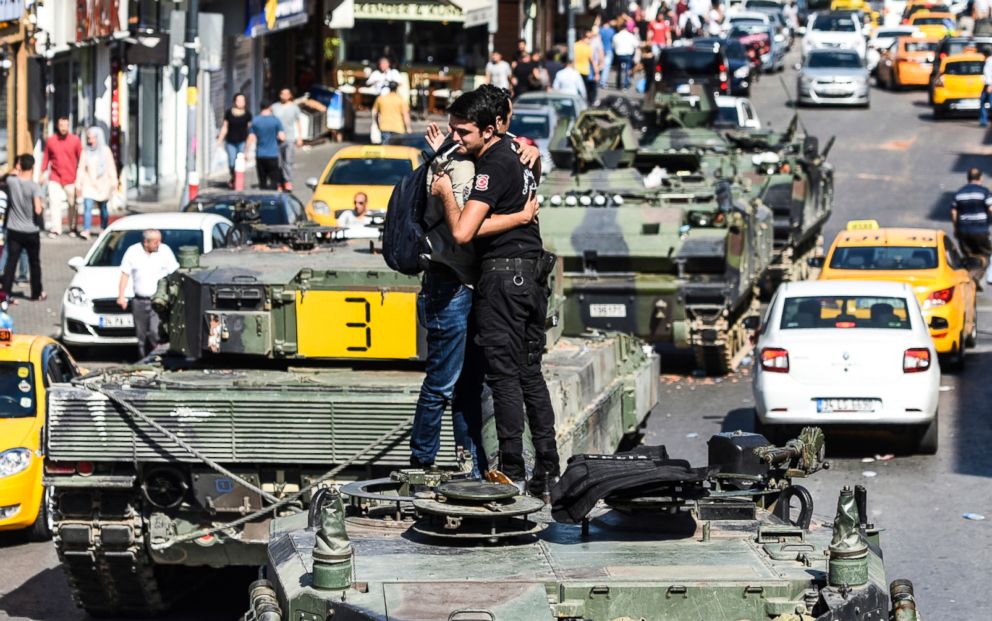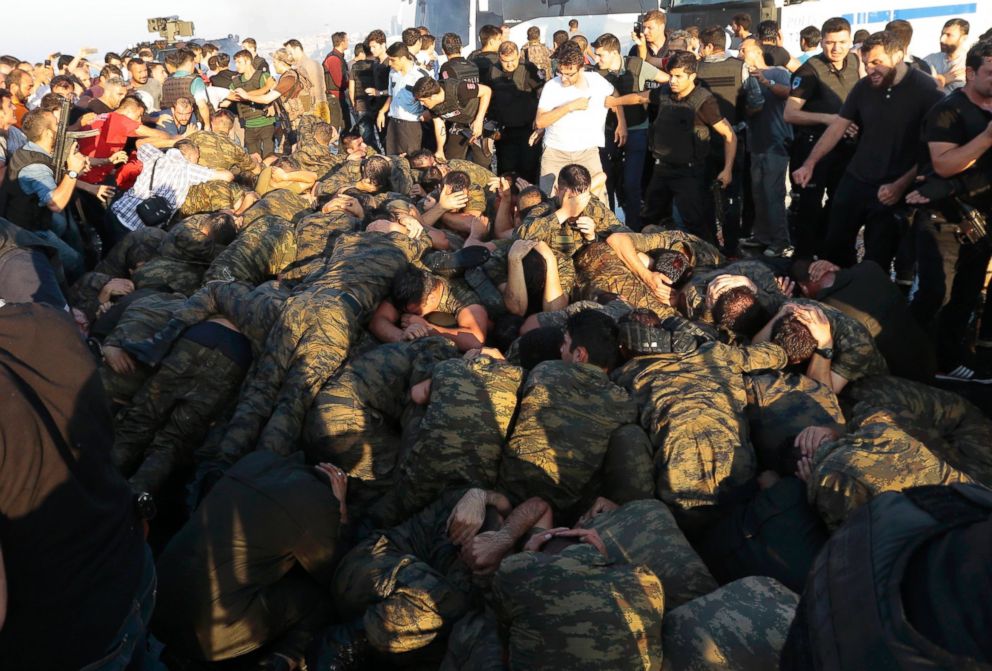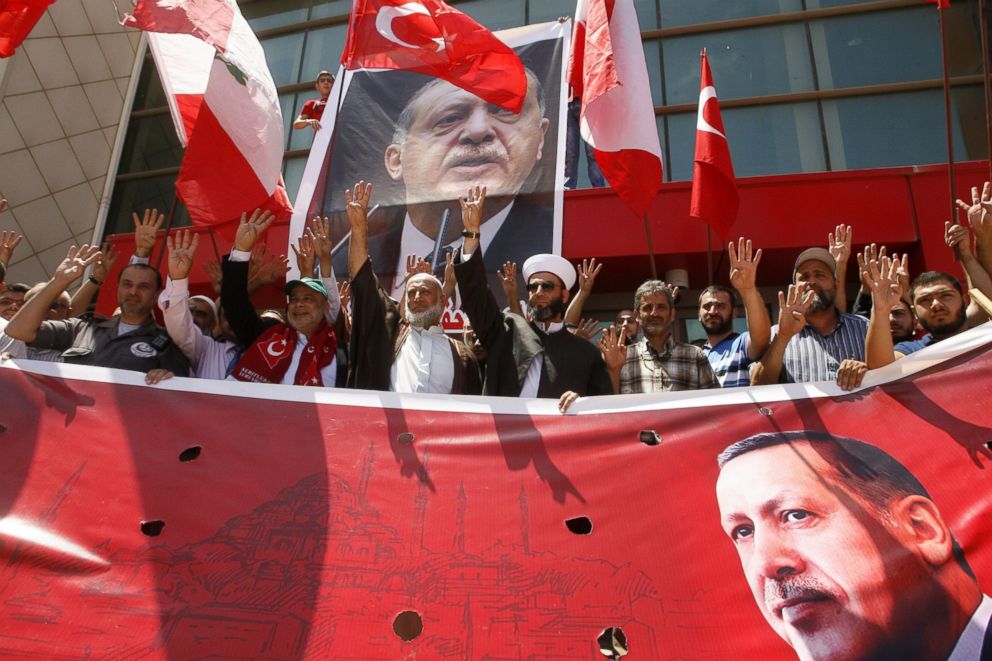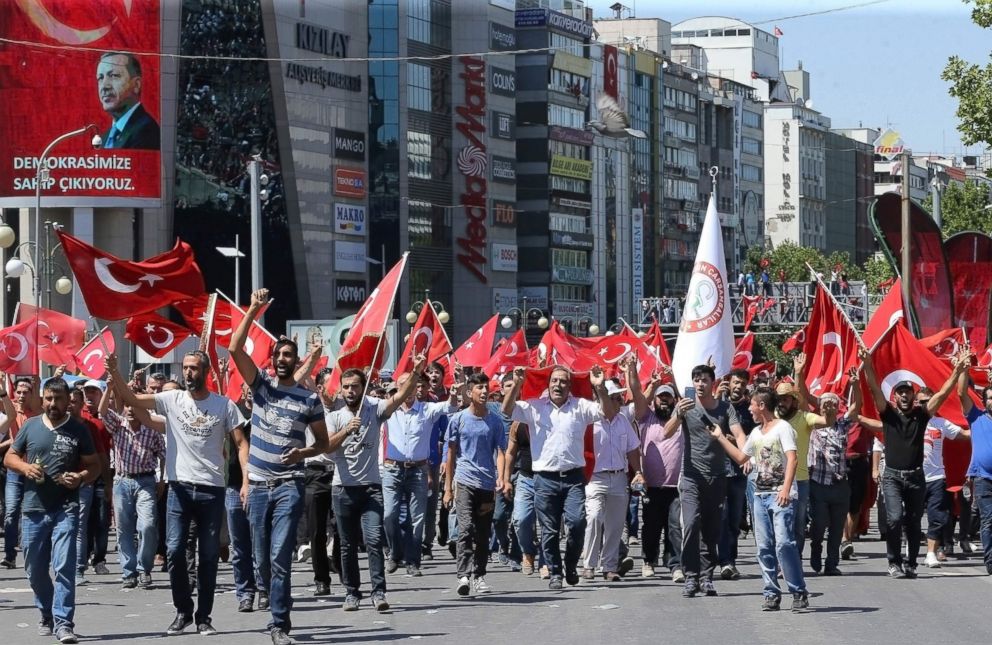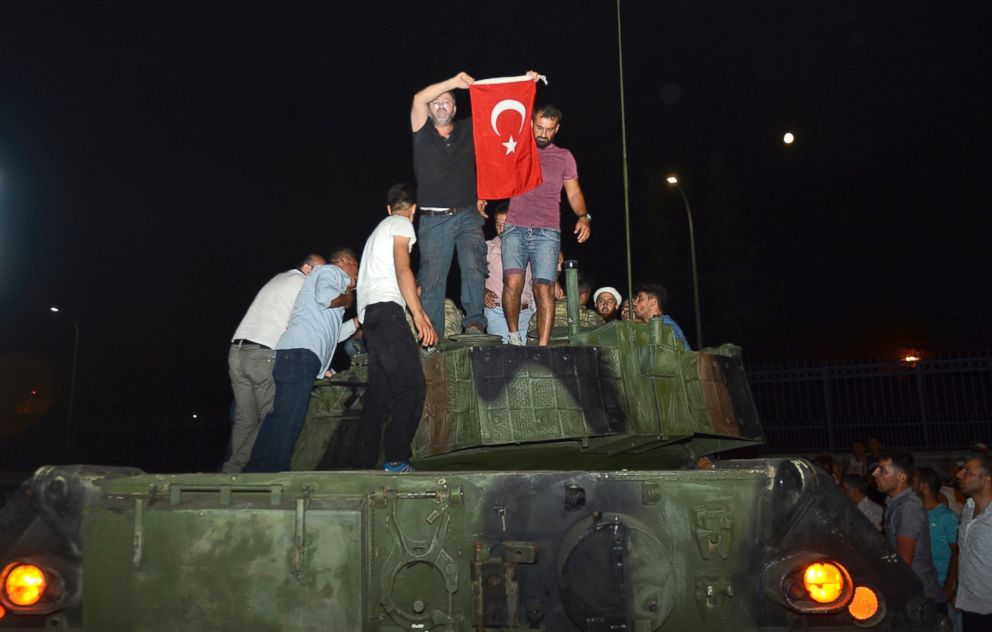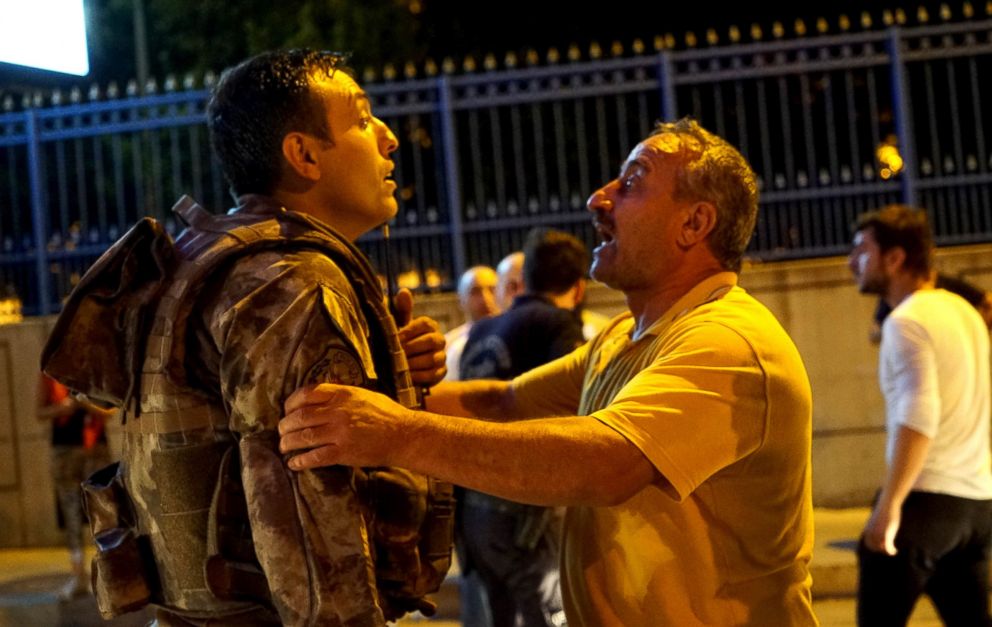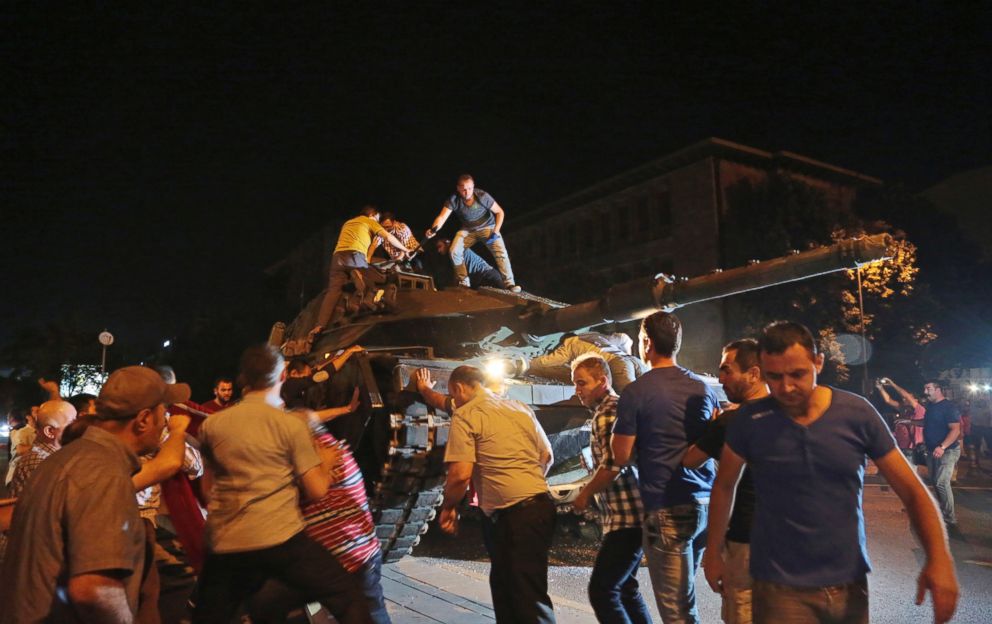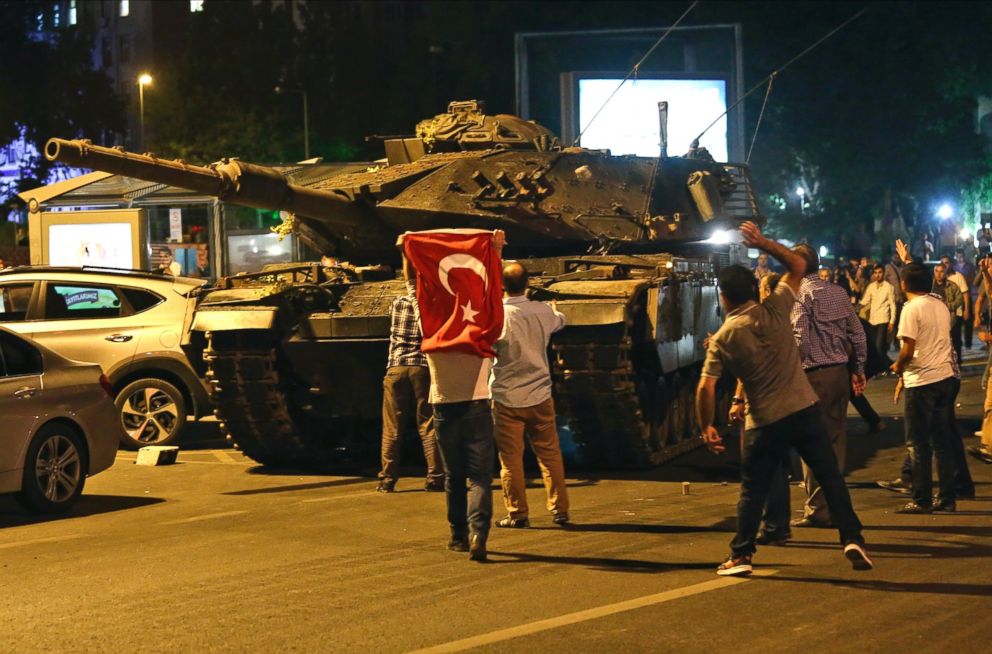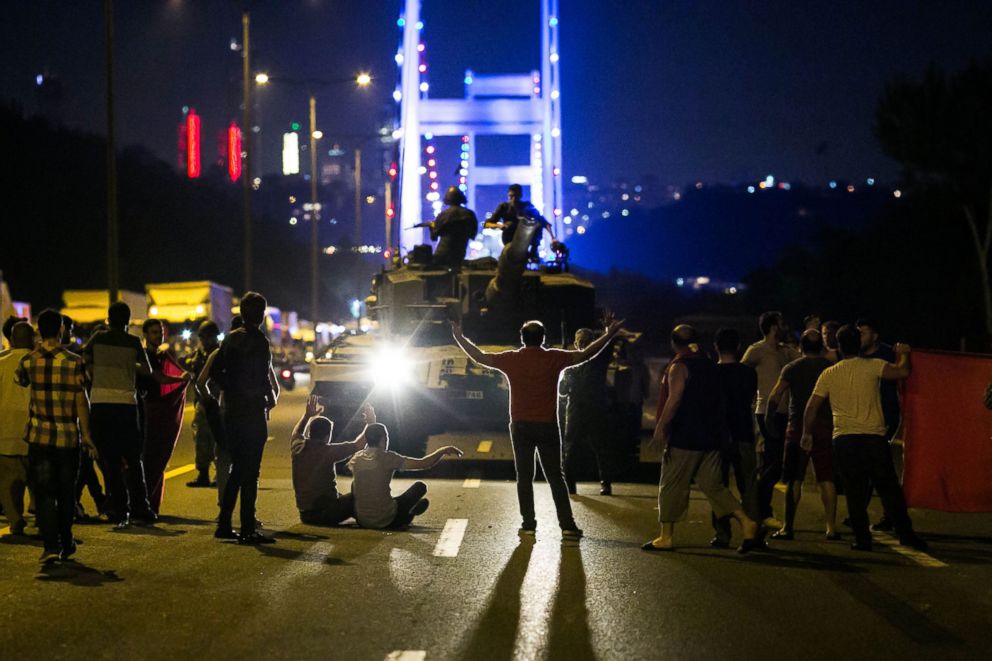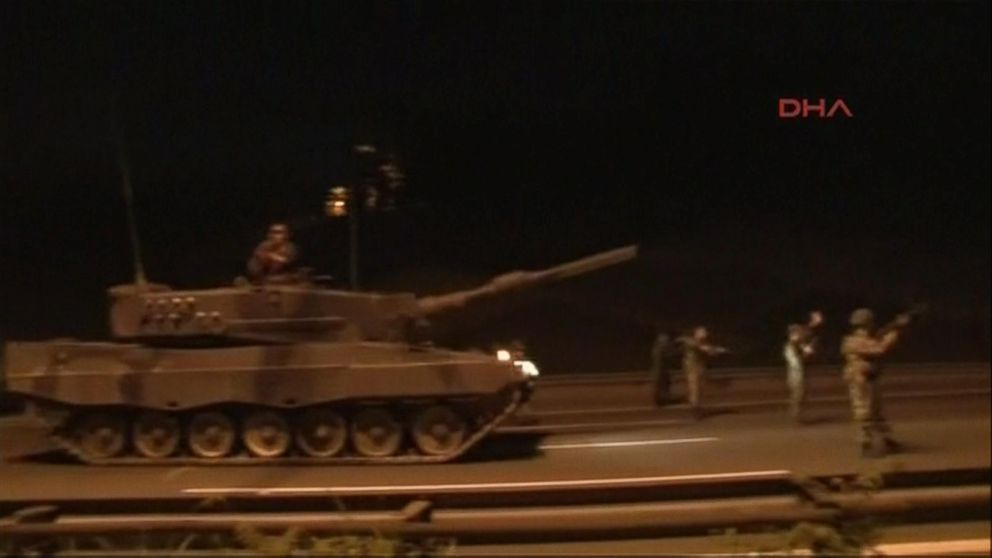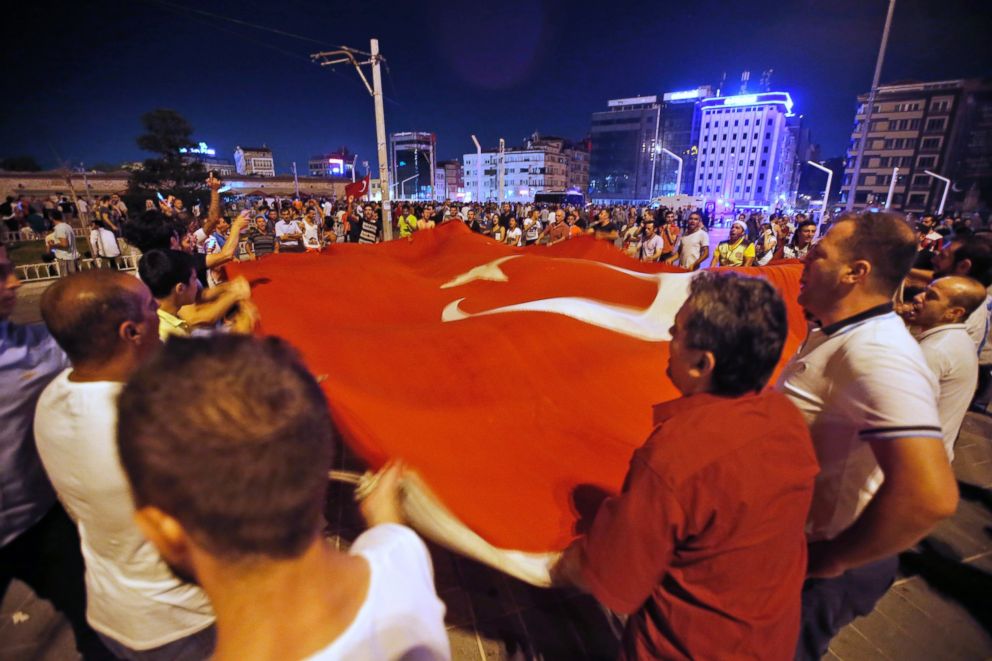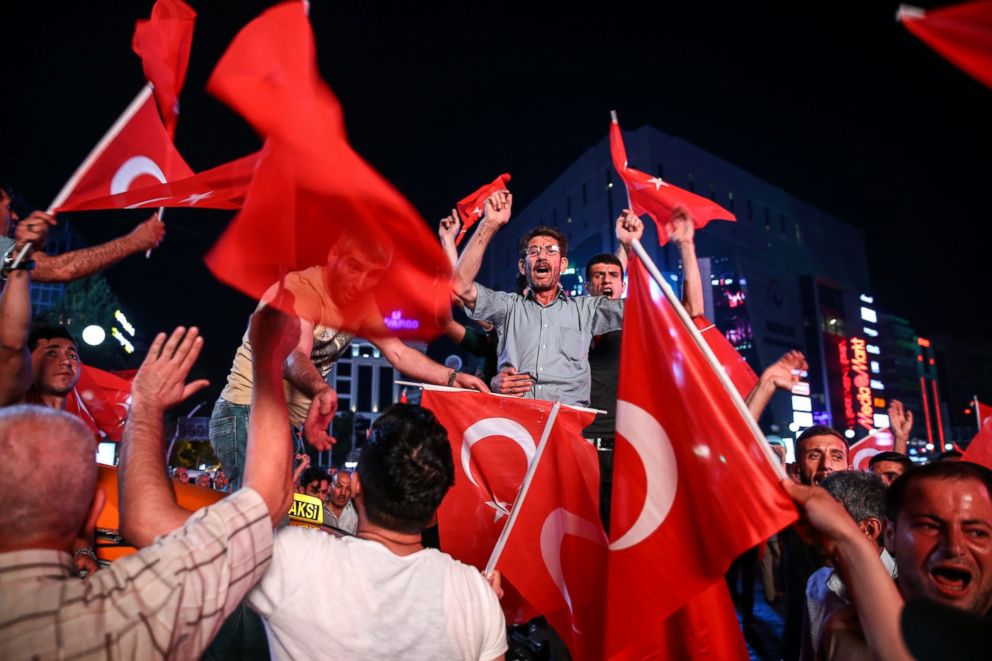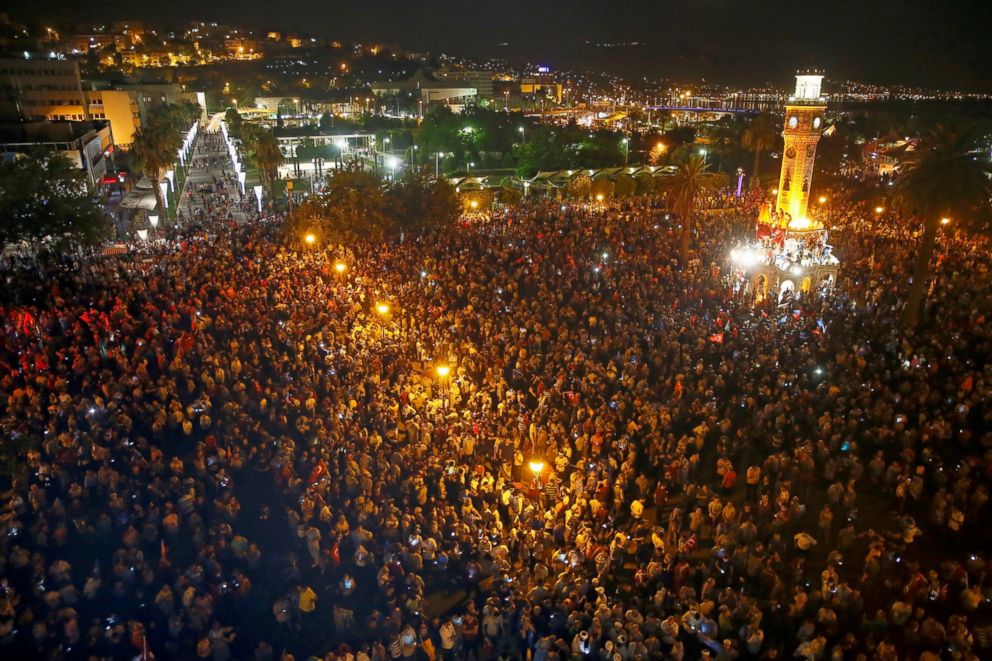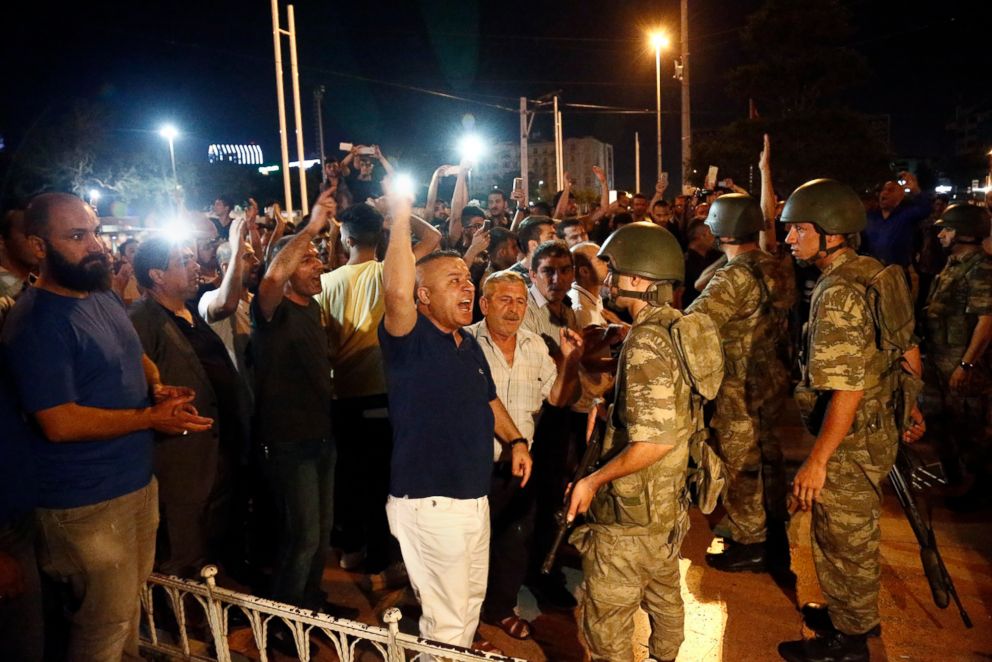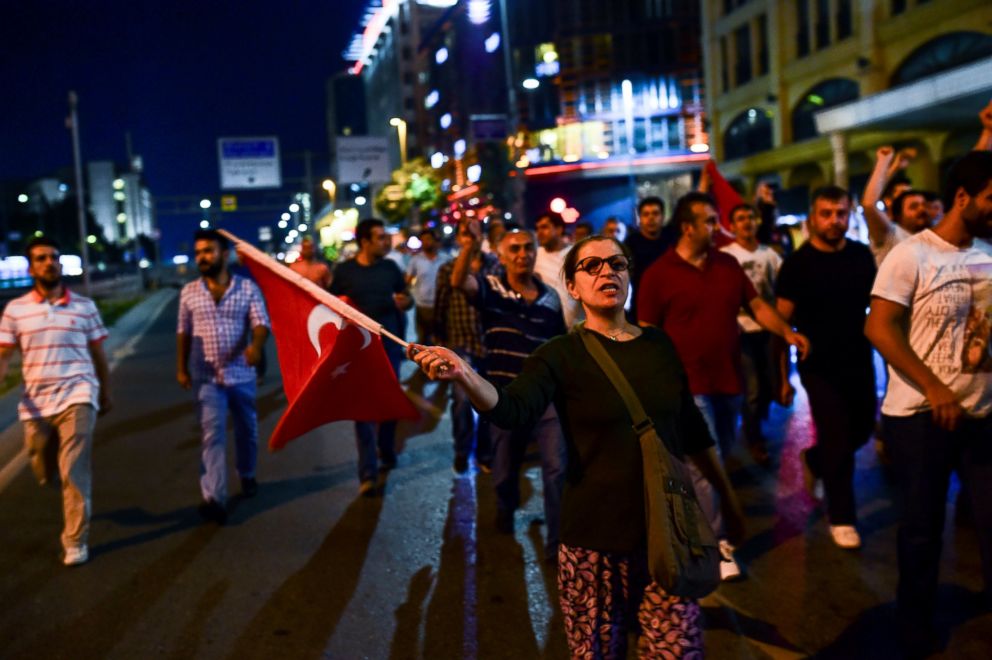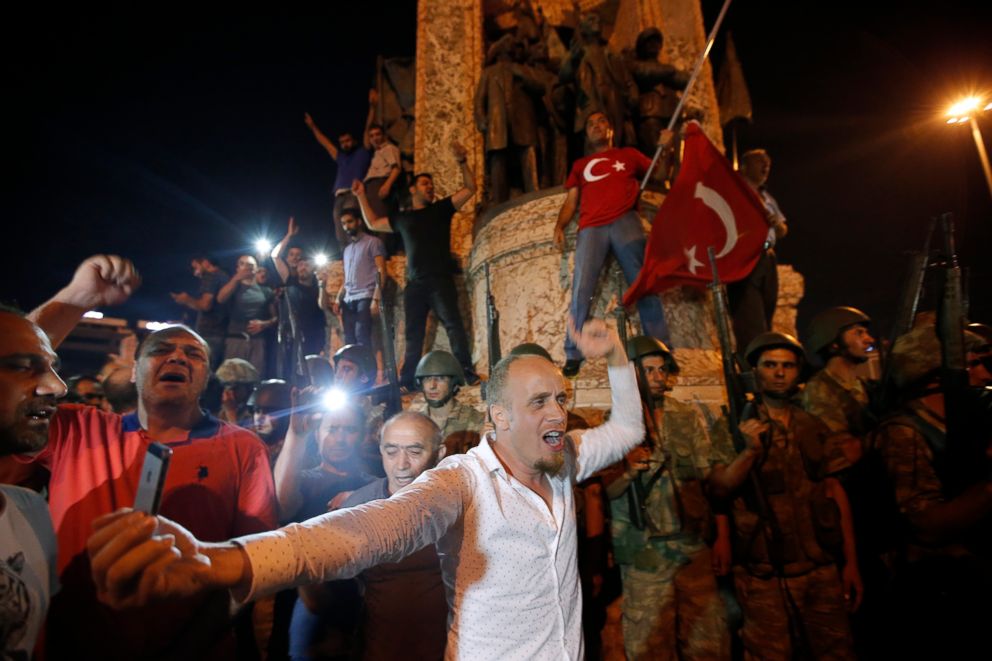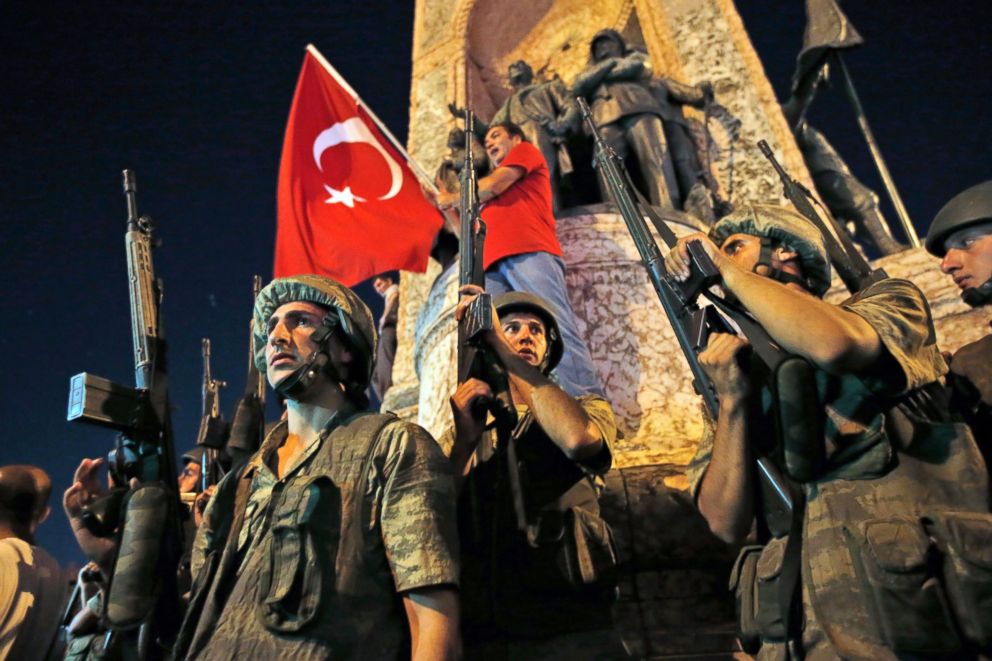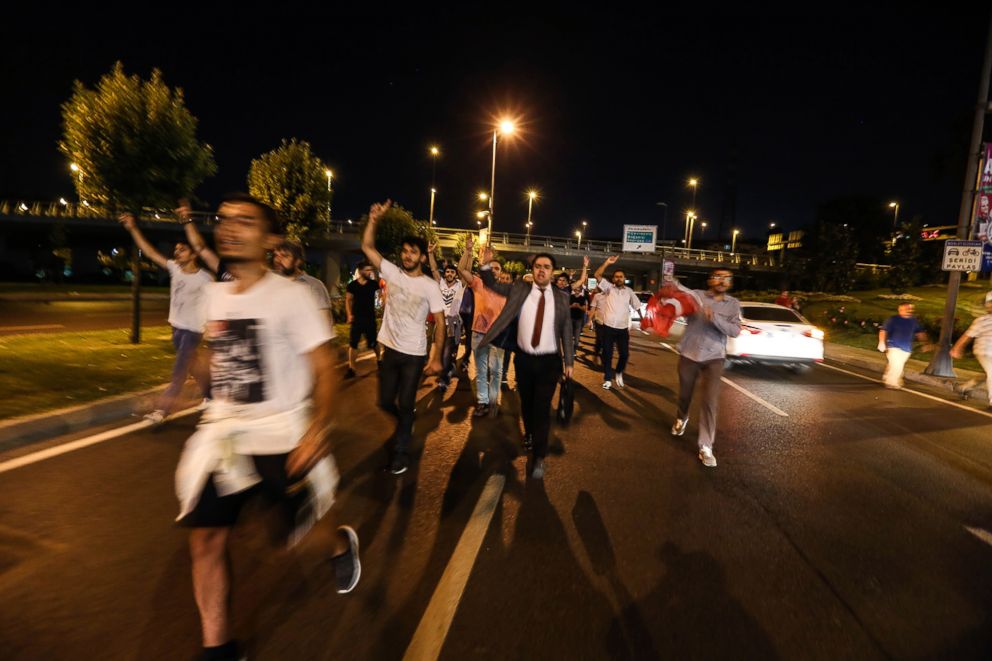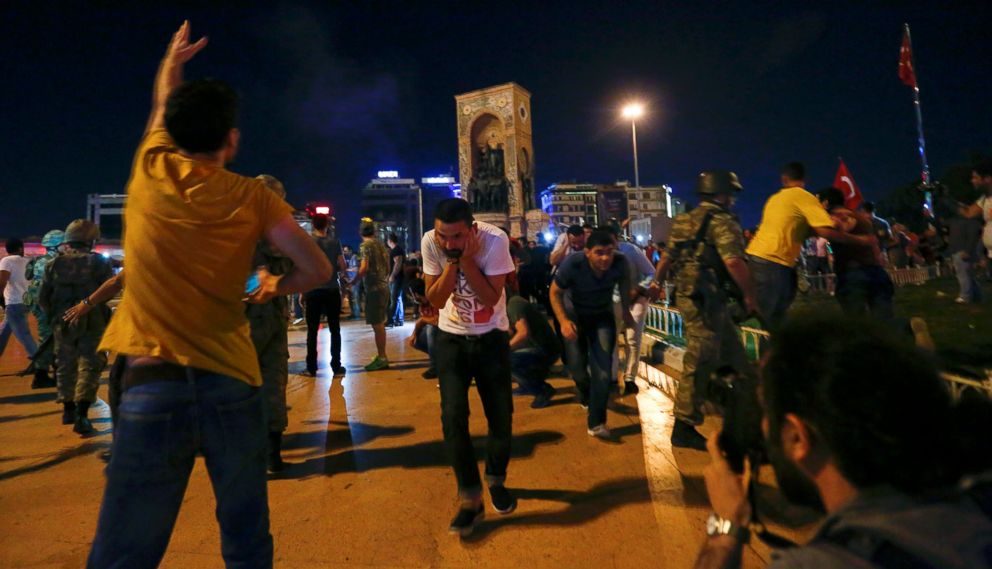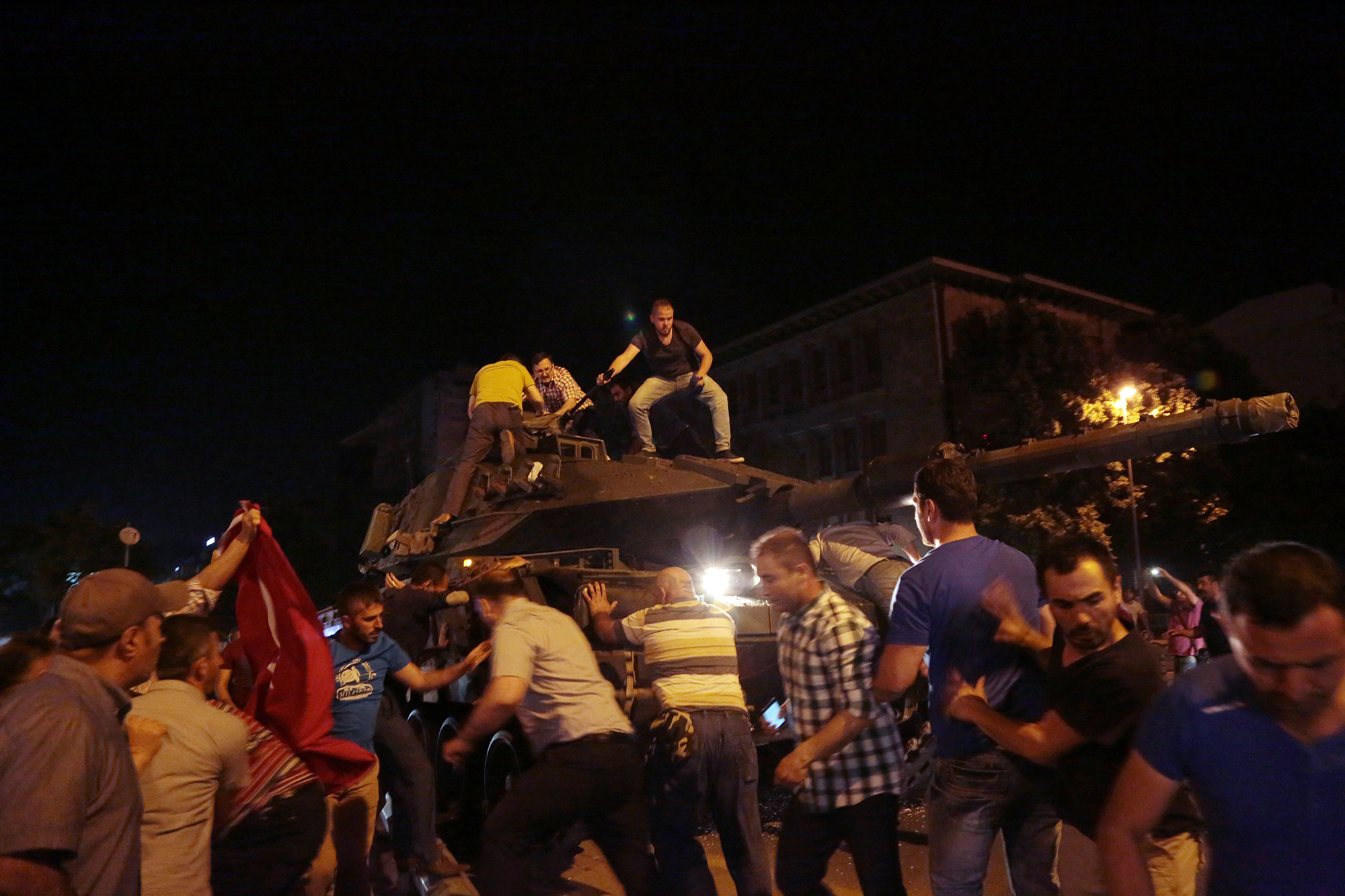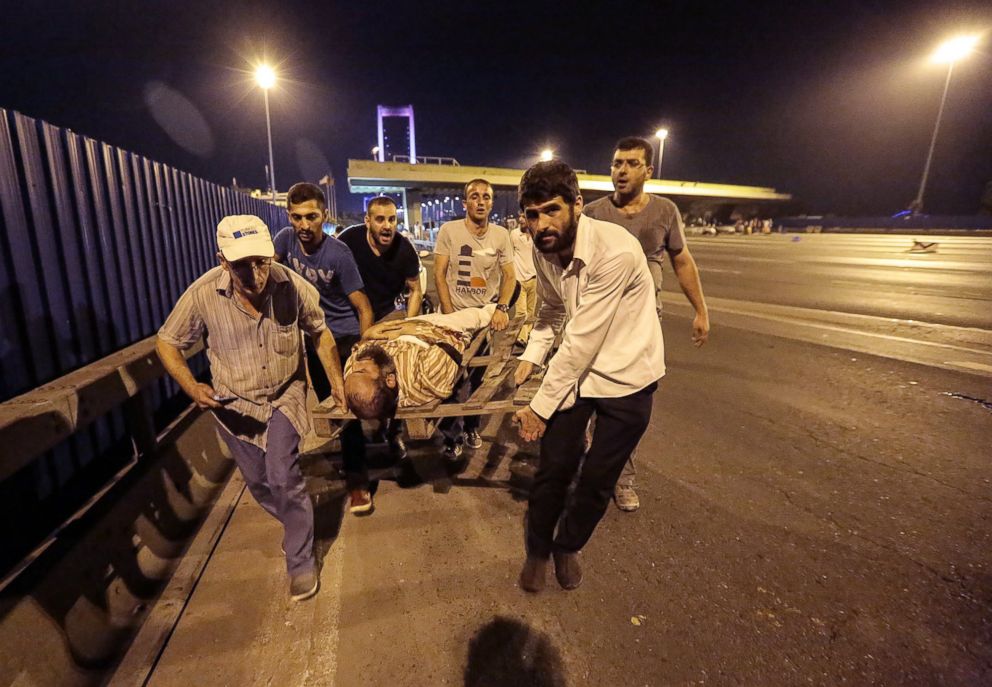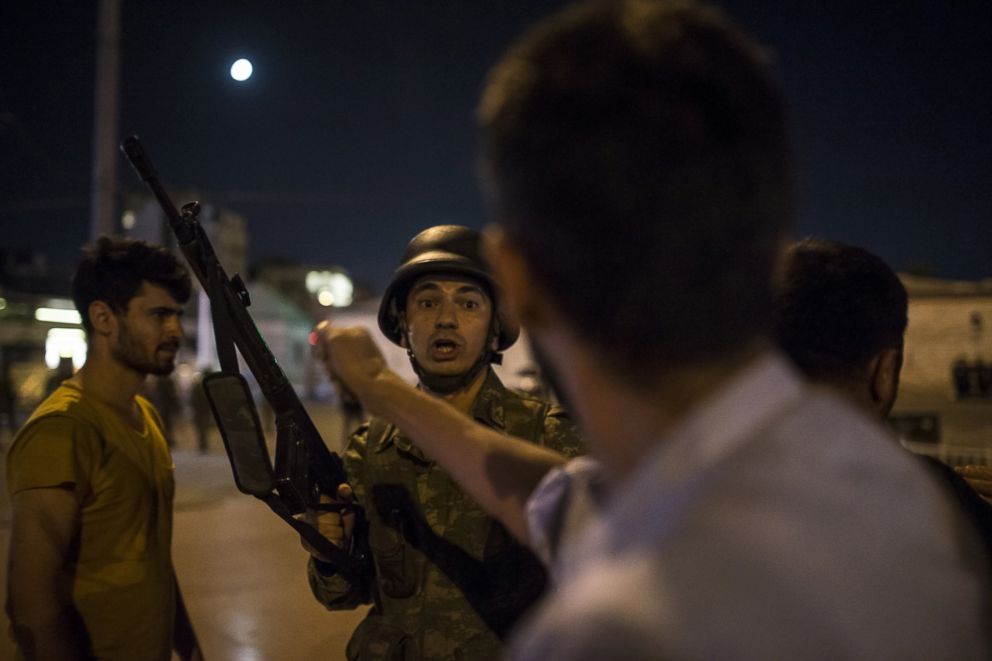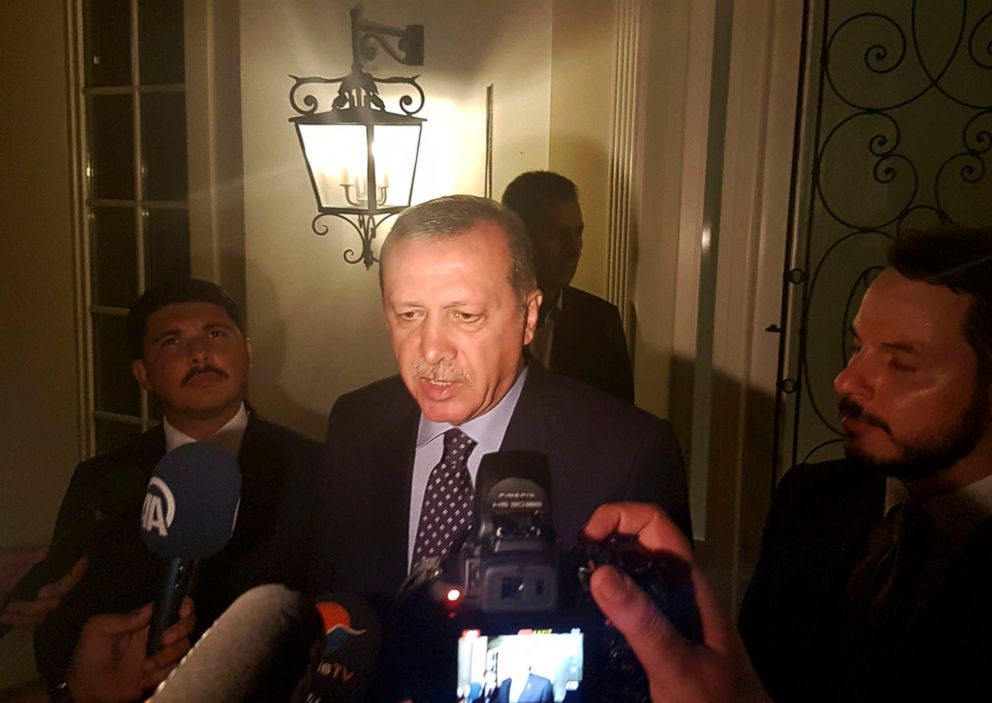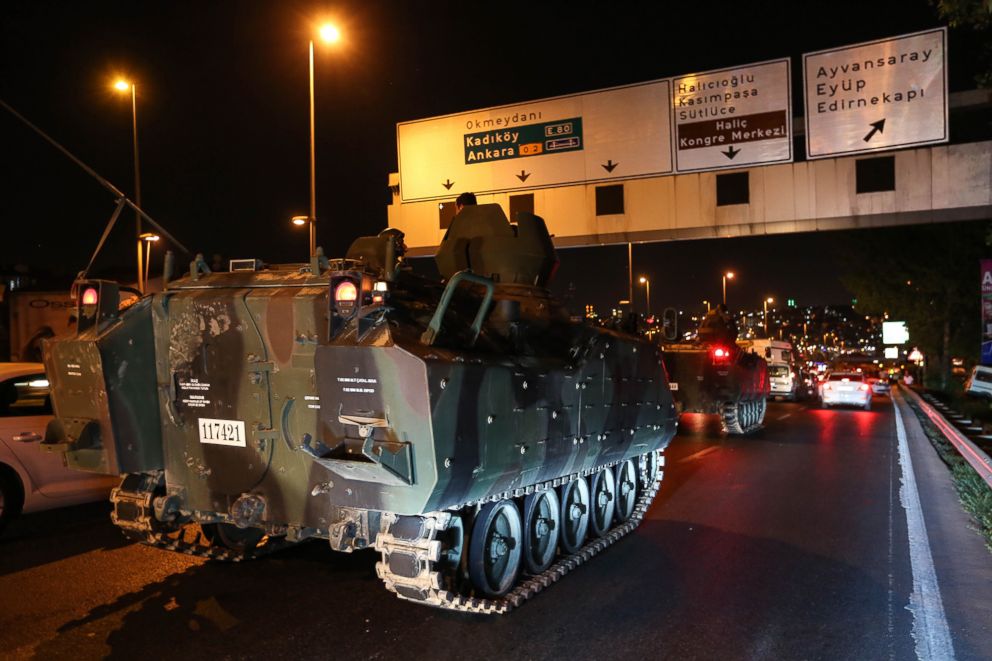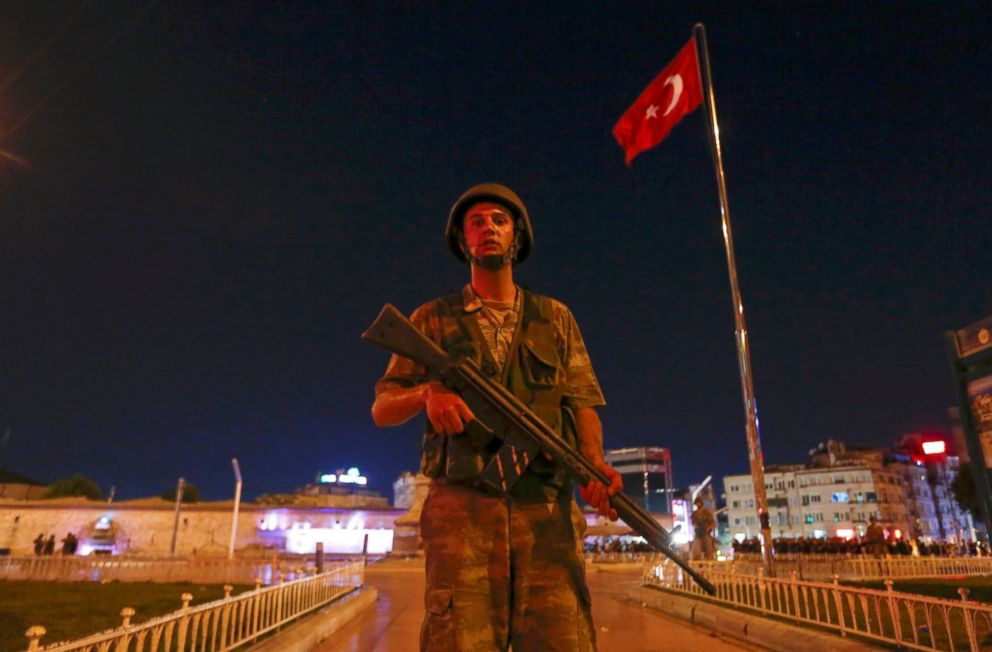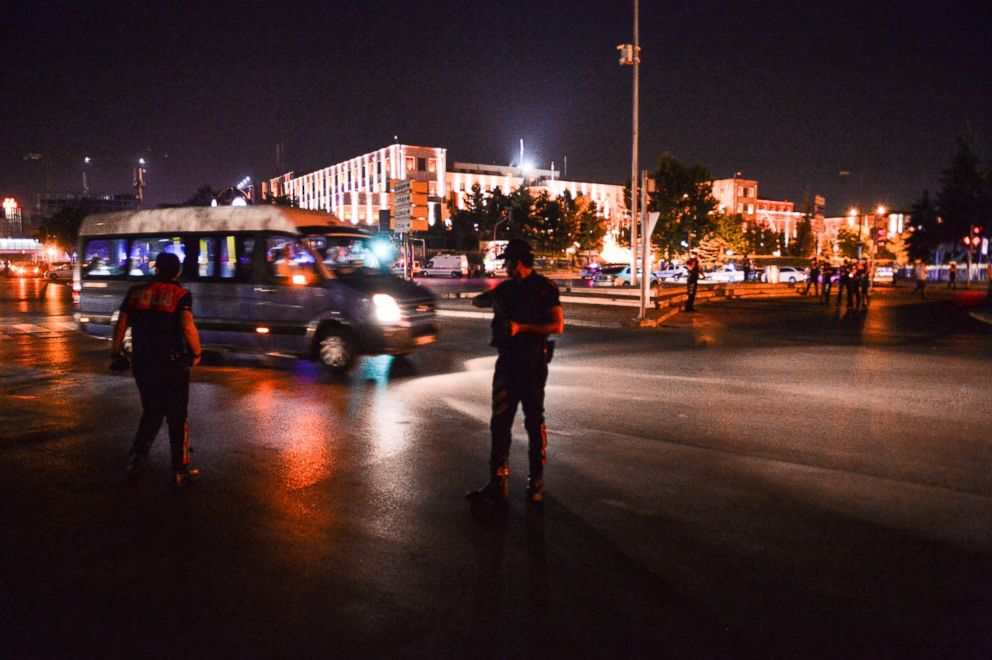After Coup Attempt, Turkish President Demands US Extradite Muslim Cleric Fethullah Gulen
Fethullah Gulen lives in self-imposed exile in Pennsylvania.
— -- Turkish President Recep Tayyip Erdogan called on the United States today to extradite to Turkey the U.S.-based moderate Islamic cleric he claims is behind Friday night's military coup attempt.
Erdogan made the demand during a televised speech addressing supporters outside his residence in Istanbul. He said Turkey had always cooperated with any extradition request for "terrorists" by the United States, emphasizing Turkey's joint role with the U.S. government in fighting terrorism.
"I say if we are strategic partners then you should bring about our request," Erdogan said.
Fethullah Gulen, who lives in self-imposed exile in Pennsylvania, has rejected the notion that he has any involvement in the attempt to seize power from Erdogan and said that he condemns "in the strongest terms, the attempted military coup in Turkey."
He said today he knows nothing about who plotted the coup.
"You can think about many motivations of people who staged this coup. They could be sympathizers of the opposition party. They could be sympathizers of the nationalist party. It could be anything," Gulen, who left Turkey in 1999, said through an interpreter.
Gulen and Erdogan were once political allies before falling out over corruption allegations leveled at the Turkish president. Since then, Erdogan has frequently accused the Muslim cleric of trying to overthrow the government.
Today he criticized Erdogan for what he called the government's "repression and persecution" of Gulen's followers in Turkey.
"It appears that they have no tolerance for any movement, any group, any organization that is not under their total control," Gulen said.
Dramatic Scenes From Turkey's Attempted Military Coup
Early in the coup attempt Friday night, Erdogan pointed his finger at his former ally, saying, "This is not a country that can be run from Pennsylvania."
U.S. Secretary of State John Kerry said the Obama administration would consider Erdogan's extradition request, given that Turkey can prove Gulen's wrongdoing.
"We fully anticipate that there will be questions raised about Mr. Gulen," Kerry told reporters while visiting Luxembourg today. "And obviously we would invite the government of Turkey, as we always do, to present us with any legitimate evidence that withstands scrutiny. And the United States will accept that and look at it and make judgments about it appropriately."
The Turkish government announced earlier today it foiled an attempted coup, initiated by a faction of the military that took over state TV, imposed martial law and a curfew and attacked the police headquarters in the capital of Ankara.
"The situation unfolded in Turkey was a coup attempt to overthrow the democratically-elected government," read a statement released by the Turkish embassy in Washington, D.C. "This attempt was foiled by the Turkish people in unity and solidarity. Our President and Government are in charge. Turkish Armed Forces was not involved in the coup attempt in its entirety. It was conducted by a clique within the Armed Forces and received a well-deserved response from our nation."
Erdogan returned to Istanbul late Friday night after going to an undisclosed location and vowed that those who carried out the coup will "pay." Earlier, he urged supporters to take to the streets in defiance.
Upon arrival at Istanbul's Ataturk Airport, the Turkish president addressed thousands of flag-waving supporters, saying the coup won't succeed.
"They have pointed the people's guns against the people," he said. "The president, whom 52 percent of the people brought to power, is in charge. This government brought to power by the people, is in charge. They won't succeed as long as we stand against them by risking everything."
Erdogan also called the coup a "gift from God" because it will help Turkey clean out the military from the "members of this gang." The timing of the coup was "meaningful," because the military will start meetings in the beginning of August, and those who staged the coup were afraid of the decisions that would be made at those meetings, Erdogan said.
"This is not old Turkey," he added. "This is new Turkey."
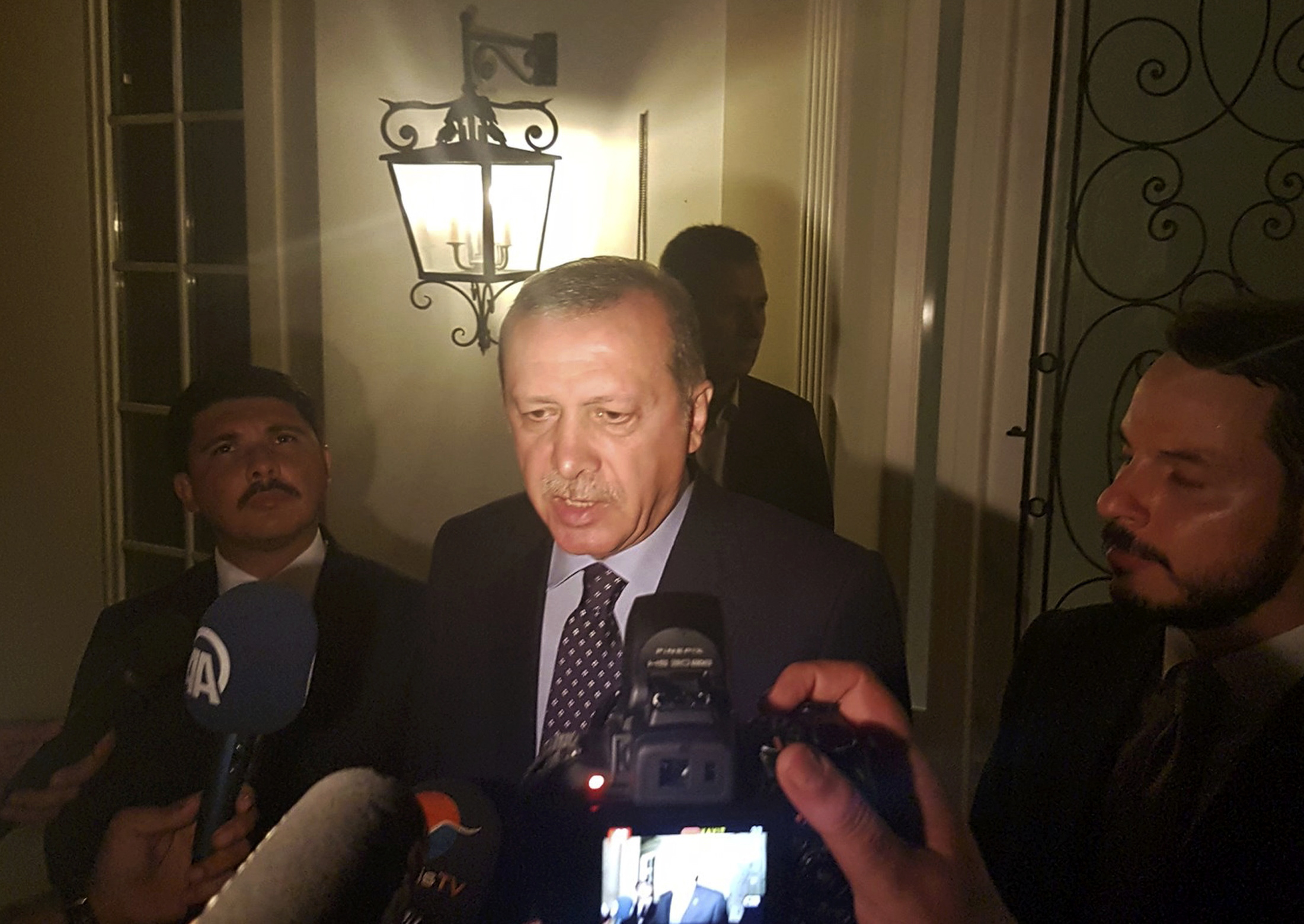
Turkish Prime Minister Benali Yildirim said 161 were killed in the overnight coup attempt and 1,440 people were wounded. Speaking at a press conference Saturday afternoon local time, Yildirim referred to the dead as "martyrs." He also described the attempted coup as a "dark stain for Turkish democracy" and blamed it on the "parallel terrorist organization" -- a term used by authorities to describe the transnational religious and social movement led by Gulen.
The prime minister said the government has detained 2,839 military members. And according to Gen. Umit Dundar, who was appointed acting Chief of General Staff, 104 coup plotters have been killed.
According to the Ministry of Interior, 29 colonels and five generals were relieved of their duties.
About 200 unarmed soldiers left Turkey's military headquarters and surrendered to police, Anadolu Agency reported.
Ataturk Airport, one of the busiest aviation hubs in the world, reopened on Saturday with Turkish Airlines announcing it had resumed operations.
"Upon the call of our President and Commander-In-Chief H.E. Recep Tayyip Erdogan, our operations at Istanbul Ataturk Airport have gone back to normal and our flights resuming safely," the airline announced around 7:30 a.m. local time.
Earlier in the day, a source at Istanbul Haydarpasa Hospital told ABC News that at least six people had been killed and 100 injured from the clashes that resulted from the coup attempt. Video shows Turkish military firing over hundreds of protesters' heads as they approached a tank on a highway.
It was not clear who was behind the attempted coup, but a broadcaster for state TV read a letter from a group calling itself the "Turkish peace council" saying that martial law is being imposed. The news anchor says media personnel were handcuffed and forced to read what they were given.
CNN Turk has said that soldiers entered their building, the Dogan Media Center, which also houses the newspaper Hurriyet and DHA, a broadcaster. Shouting could be heard in the background as an image of the studio broadcast on TV.
Later, the Turkish army's chief of staff, Hulusi Akar, was rescued from detention and is back on duty after a military operation, the prime minister said. Those that held him hostage have been "eliminated," Yildirim said. The rescue operation was launched at Akincilar air base in the outskirts of Ankara. He was taken there by helicopter after being taken hostage at military headquarters in Ankara.
Yildirim added that security forces were doing what is necessary to resolve the situation.
Speaking on Turkish television, Yildirim said the military leadership has ordered all soldiers back to their bases. The prime minister called those behind the coup "traitors" and called the move "a terrorist act."
Turkey’s state-run Anadolu Agency reported that a military helicopter had attacked Ankara police headquarters. It was not clear if there were any injuries. Other clashes and explosions were also been heard in the capital city, while video posted to Twitter show military jets flying over the city.
The Bosphorus Bridge and Fatih Sultan Mehmet Bridge in Istanbul were closed and Turkey’s Dogan News Agency reports the national police directorate had summoned all police to duty in Ankara Friday night.
At first, the scene at Taksim Square, a popular tourist destination in Istanbul, was tense but calm, and people were lining up at ATMs to withdraw cash and buying bread and water in case services go down, an eyewitness told ABC News. Video posted to Instagram showed crowds of people lining up at a grocery store and ATMs.
Shortly after, pro-military chants started to take place in the square, and then shots were fired, forcing people to leave, she said.
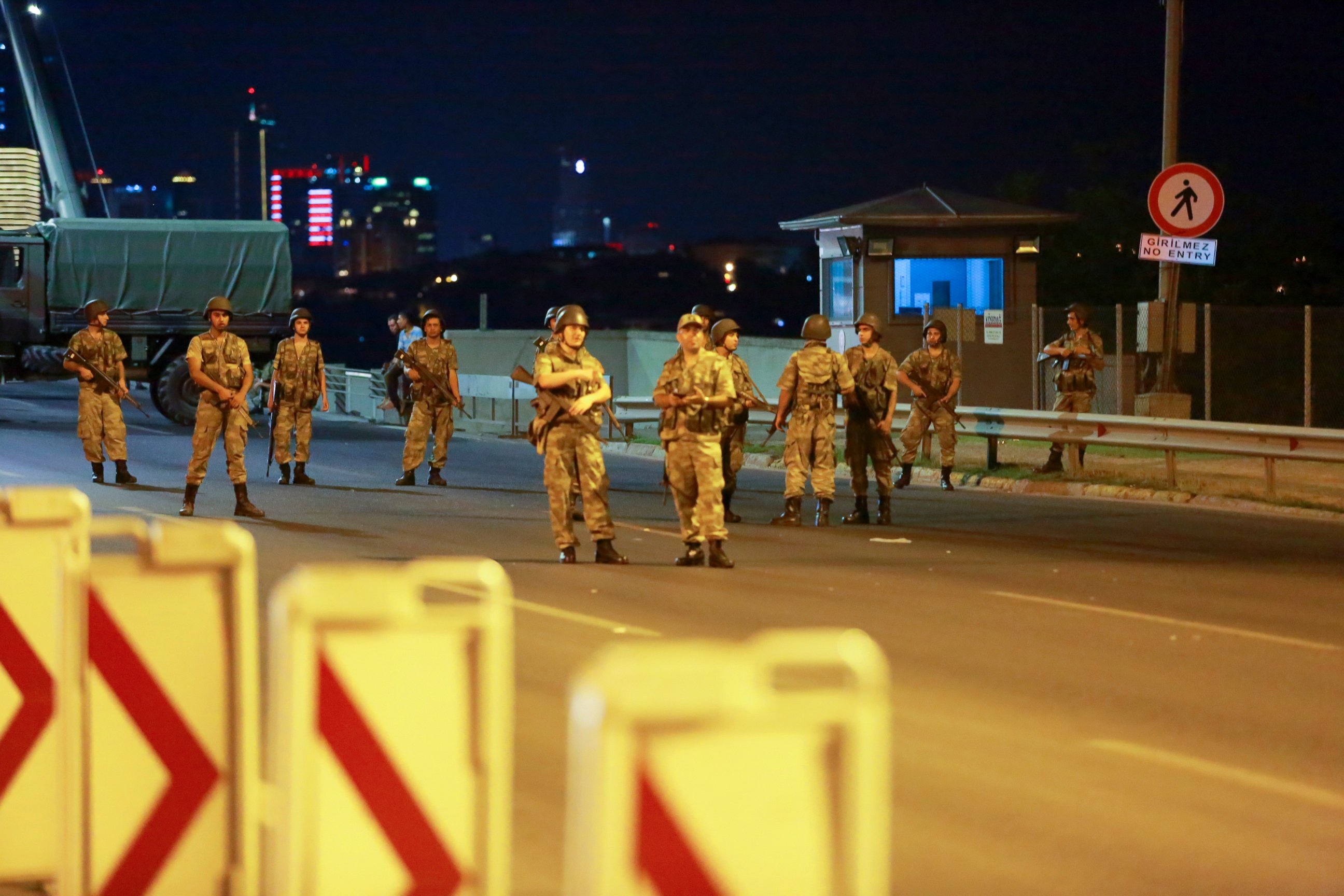
In a FaceTime interview with CNN Turk, Erdogan called on his supporters to gather in the country's squares and airports.
"We will give a strong reply to the leader of the coup," Erdogan said. "I declare those responsible will receive the highest penalty.”
Erdogan was reported to have been at his summer house in the south of Turkey, but he is now back in Istanbul. Turkish TV showed him being mobbed by supporters after he landed.
A senior defense official told ABC News that the Department of Defense is concerned about the situation and is trying to assess the facts. There are 2,200 U.S. personnel stationed in Turkey. A total of 1,500 U.S. service members and civilian employees are at Incirlik Air Base, which has been at an elevated force protection level since March, when it also ordered non-essential personnel out, the official said.
U.S. citizens in Turkey were told to shelter in place and stay indoors, the U.S. State Department said Friday night, adding to contact family and friends to inform them they're safe. The state department also confirmed that martial law and a curfew was imposed in Turkey, and U.S citizens were advised not to attempt to travel to the U.S. Embassy in Ankara or Consulates at this time.
The U.S. embassy said it has seen reports that social media has been blocked. Twitter said it found "no reason" to think it was fully blocked in Turkey, but it suspects there is an international slowing of traffic in the country.
President Obama and Secretary of State John Kerry said all parties in Turkey should support the democratically elected government of Turkey, show restraint and avoid any violence or bloodshed, a statement from the White House read. The State Department will continue to focus on the safety and security of U.S. citizens in Turkey, and the president asked that Kerry continue to brief him as the situation unfolds.
Turkey has a history of military coups. The last coup was in 1980, when 650,000 people were put under arrest. The country has the second largest army after the U.S. and any NATO country. Turkey joined NATO in 1952 and has remained a NATO member throughout its previous coups.
In 2012, more than 300 military officers were jailed over an alleged conspiracy to overthrow Erdogan's government.
The armed forces were long viewed as guardians of secular republic established by Mustafa Kemal Ataturk, carrying out three coups between 1960 and 1980 and pushing an Islamist-led government from power in 1997.
ABC News' Rex Sakamoto, Devin Villacis, Engin Bas, Kirit Radia and Justin Fishel contributed to this report. The Associated Press also contributed to this report.
